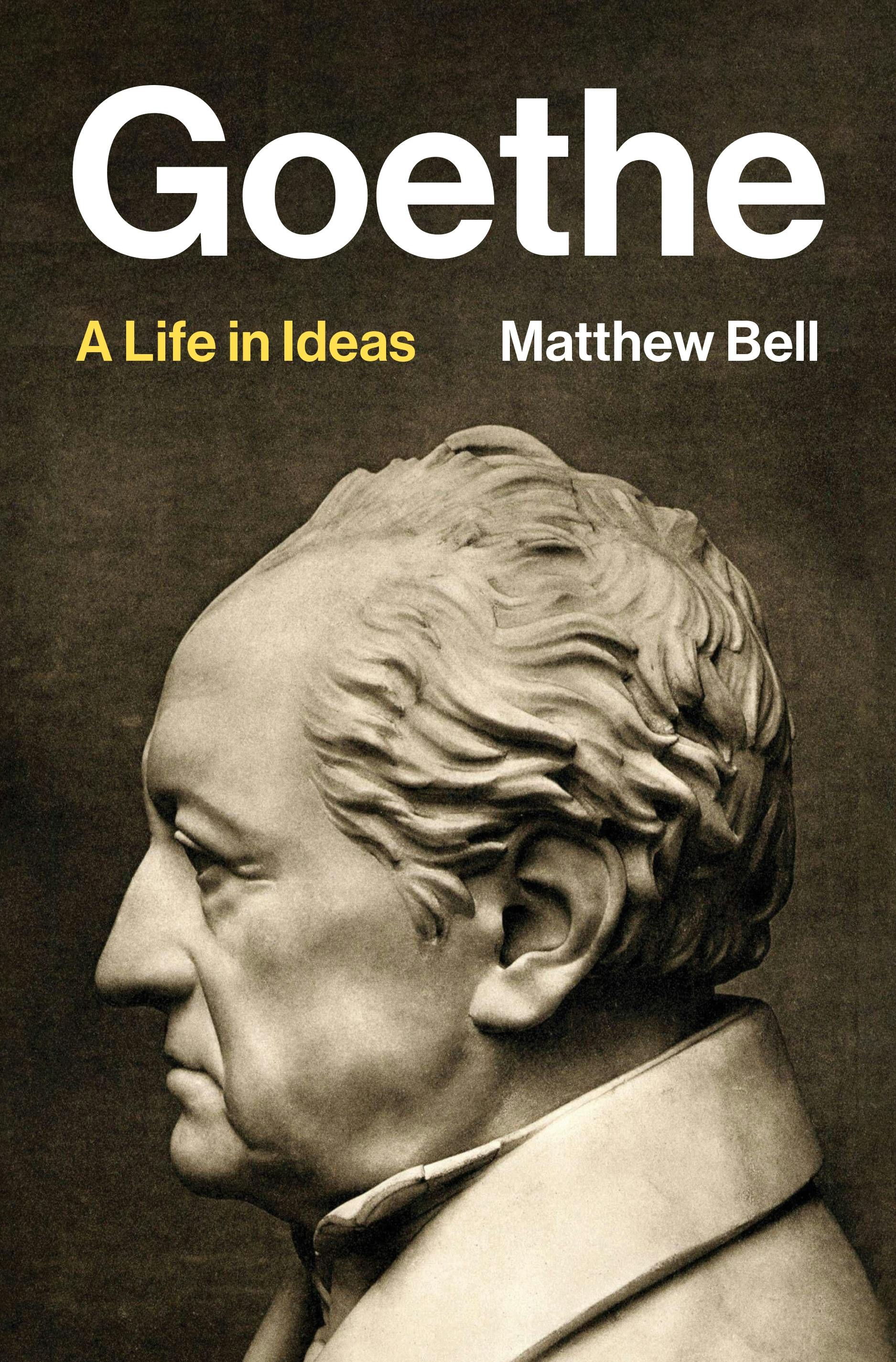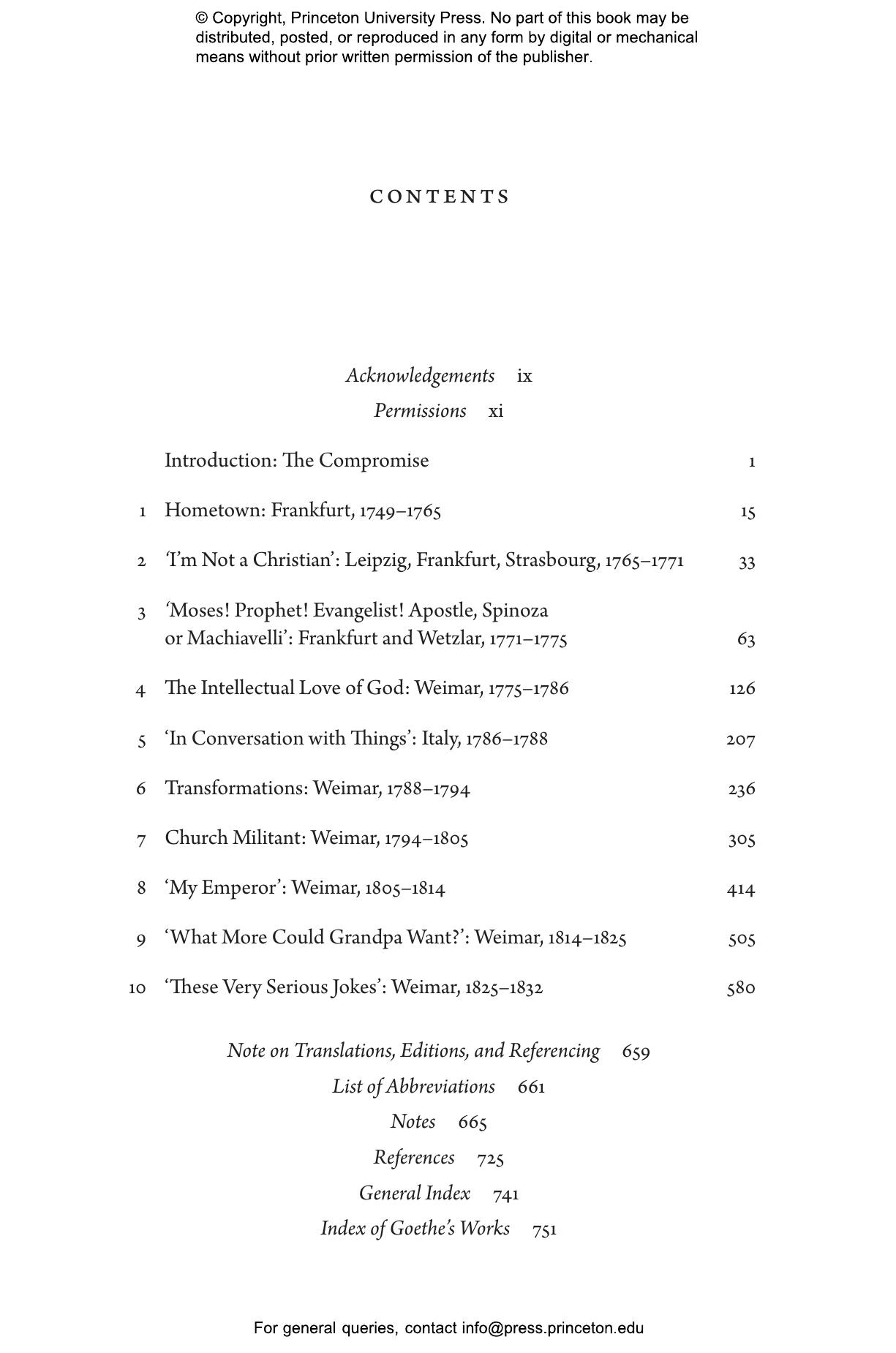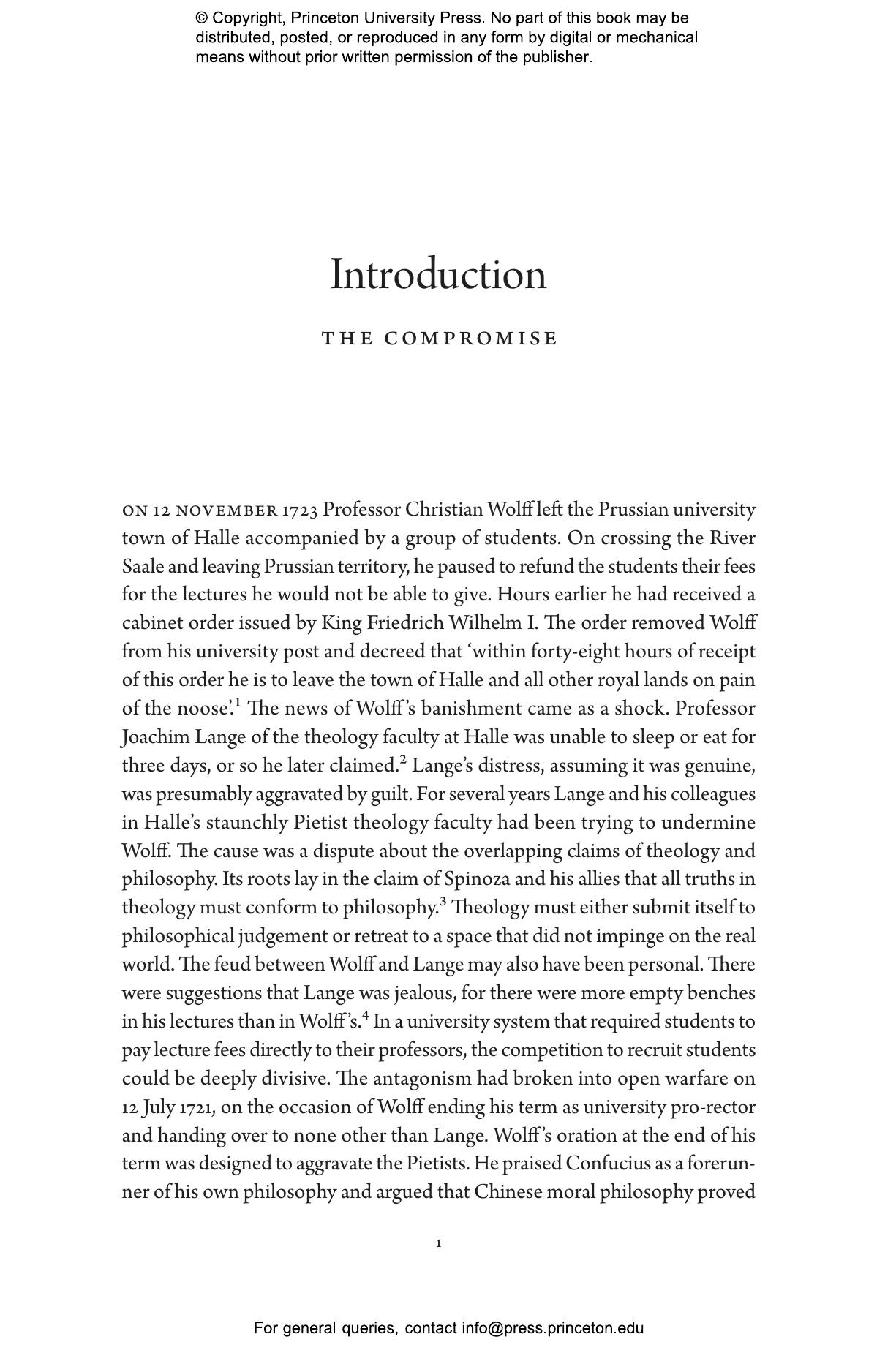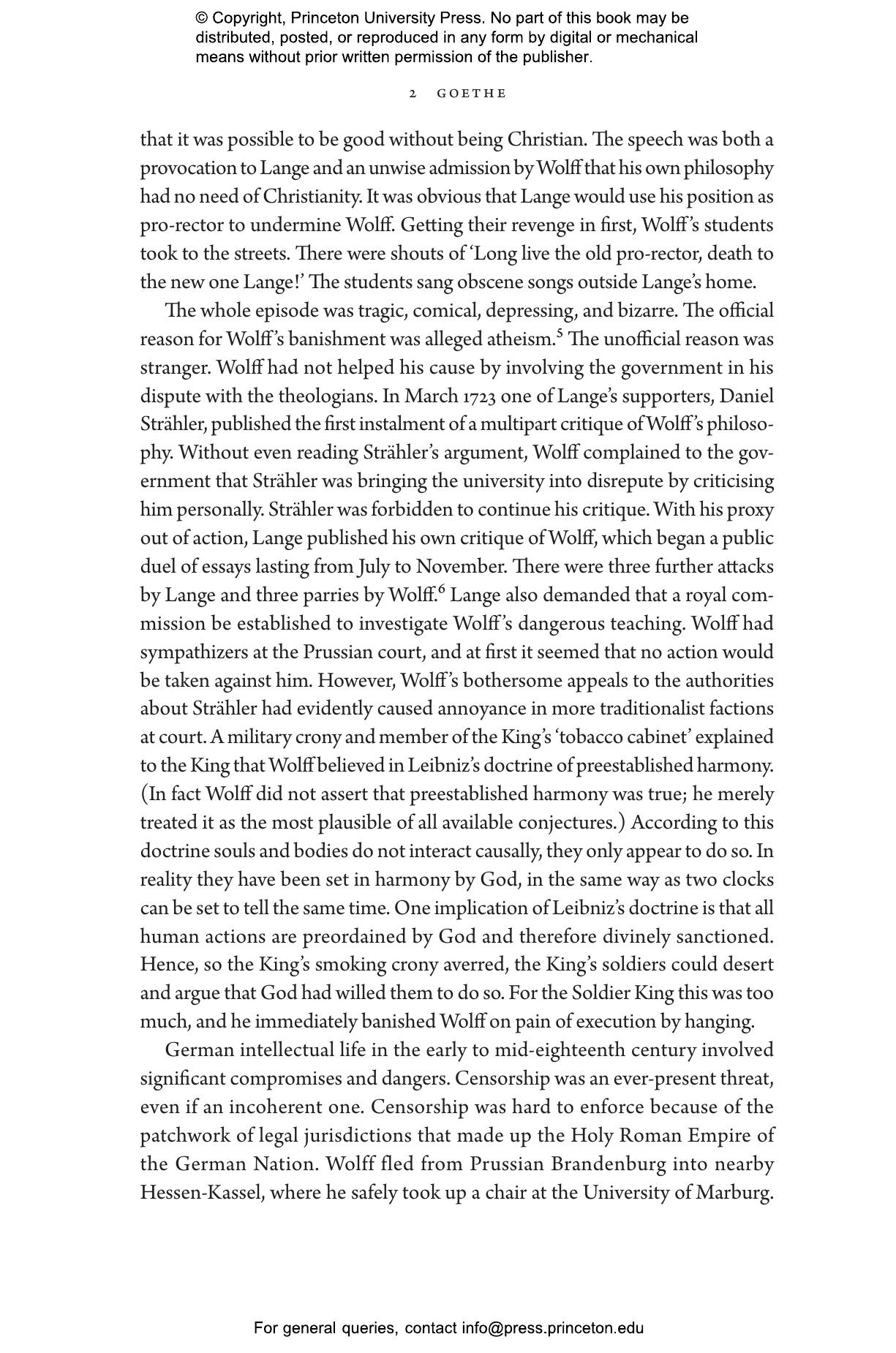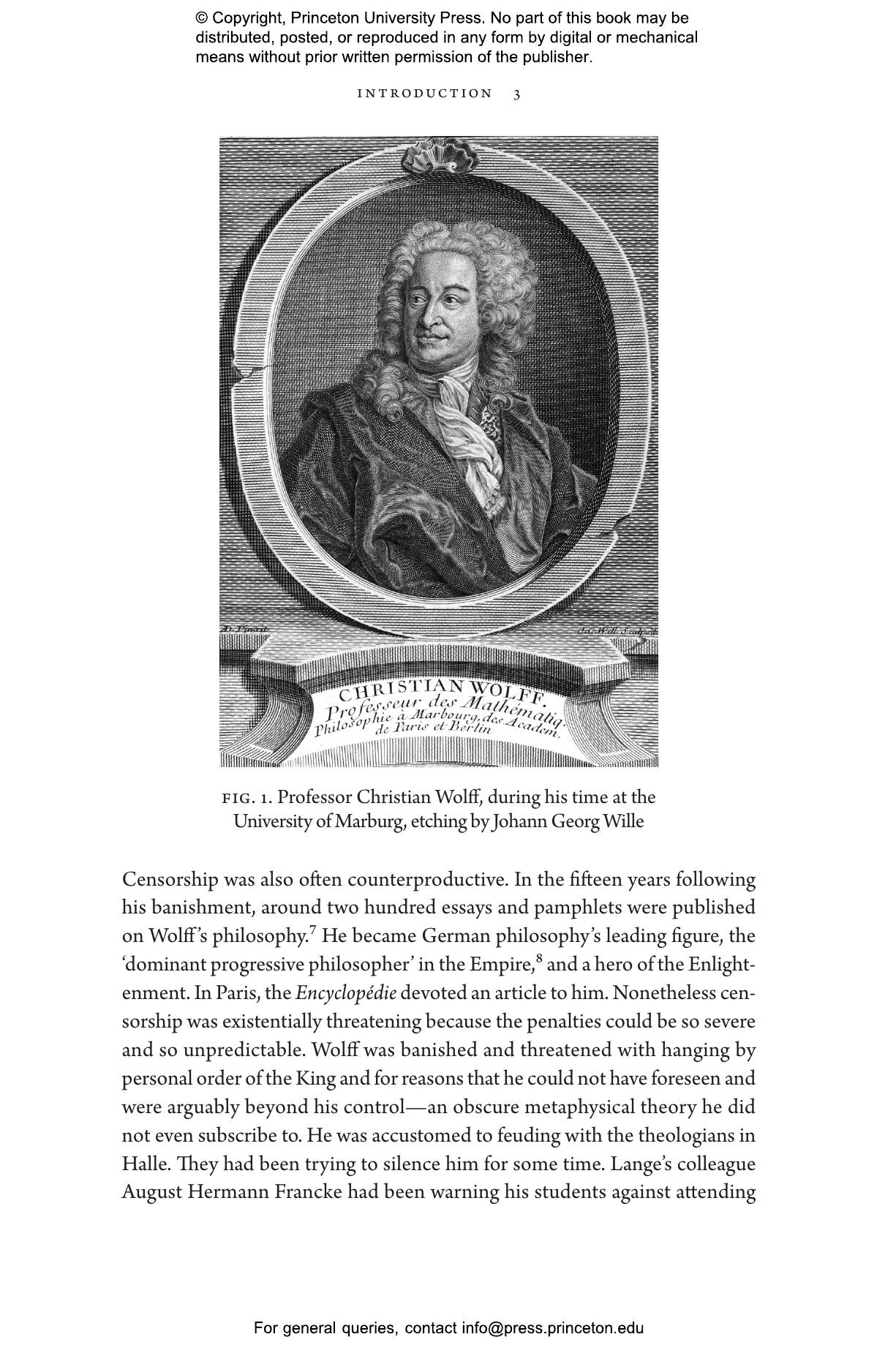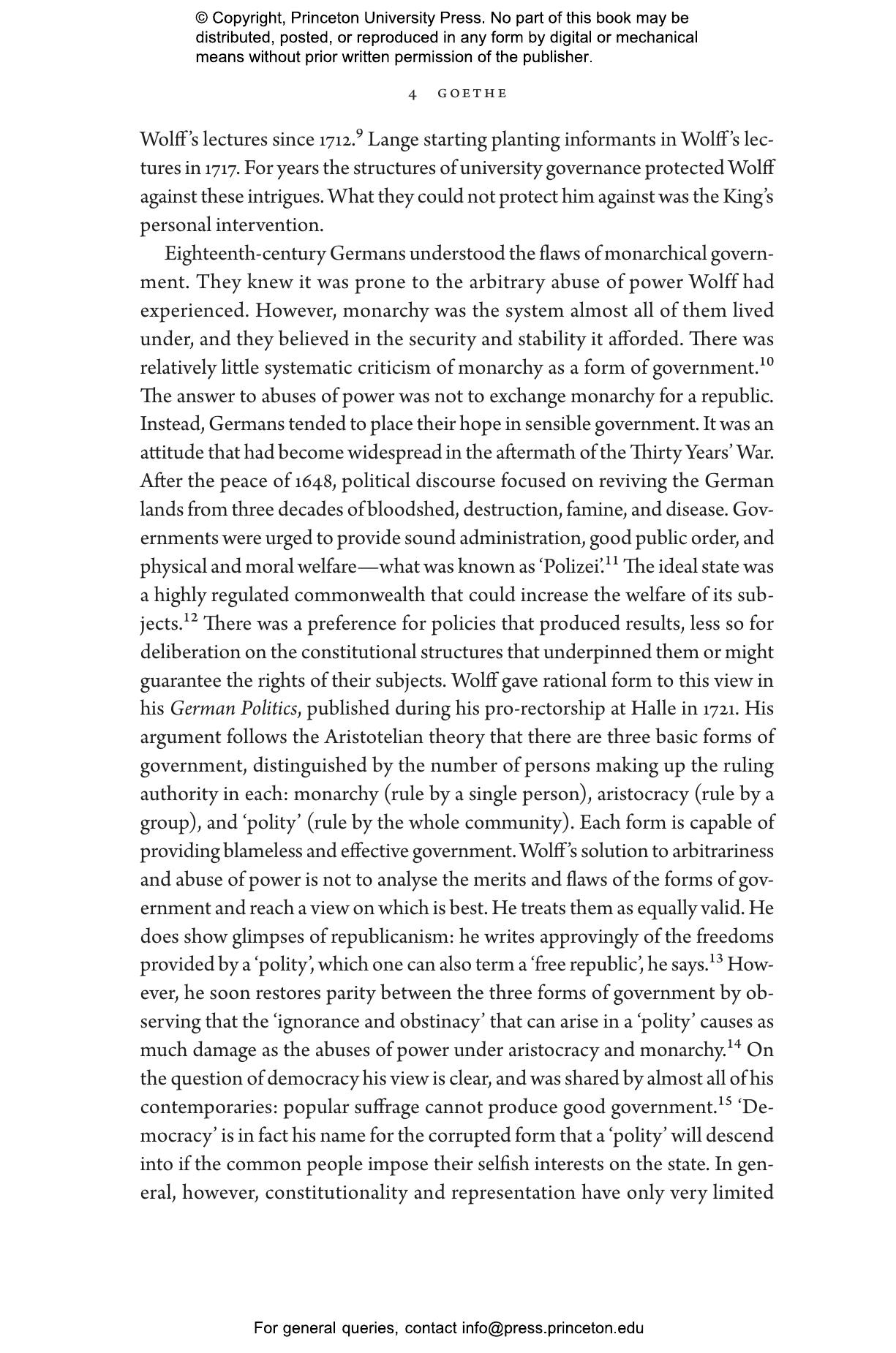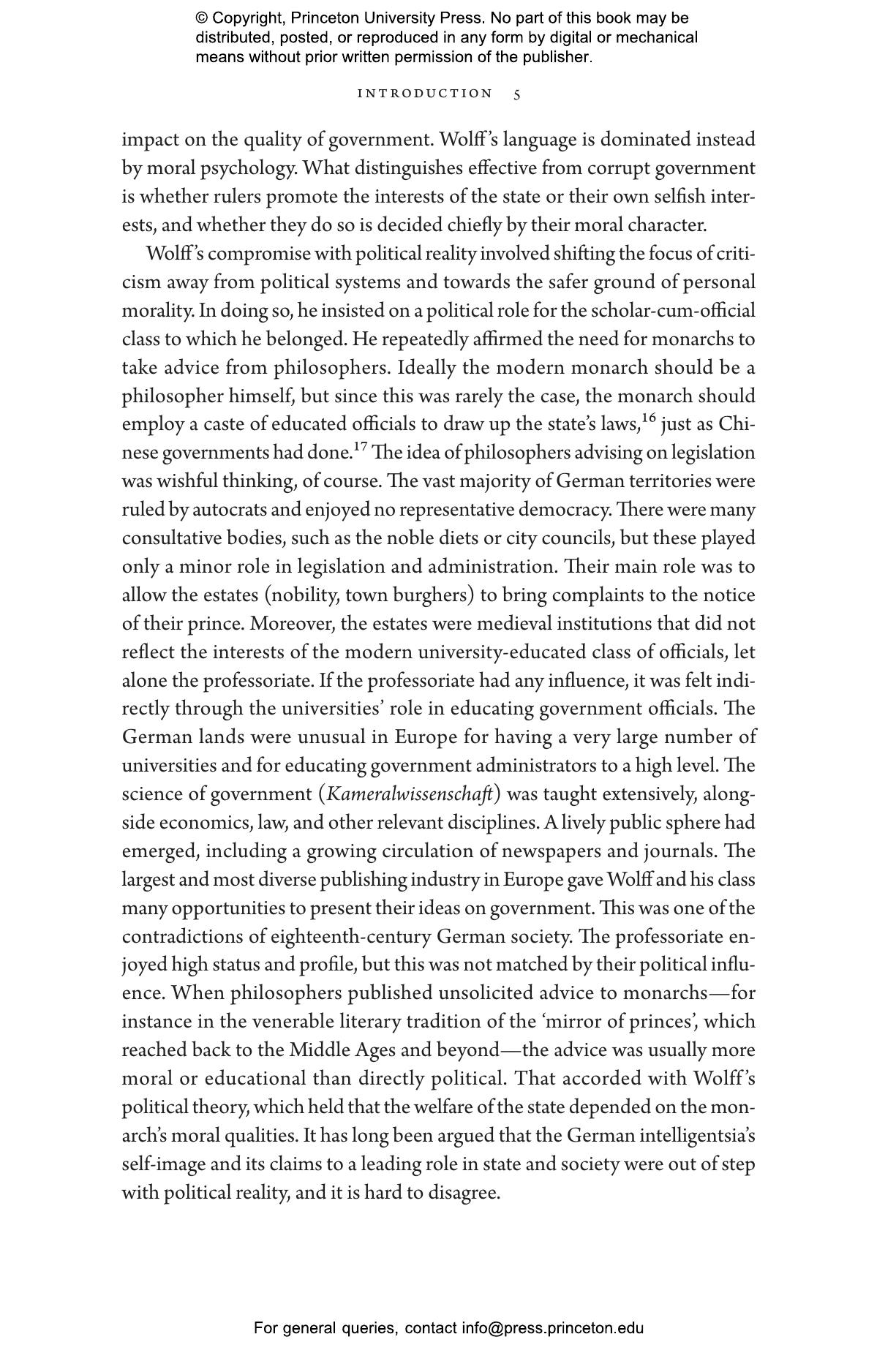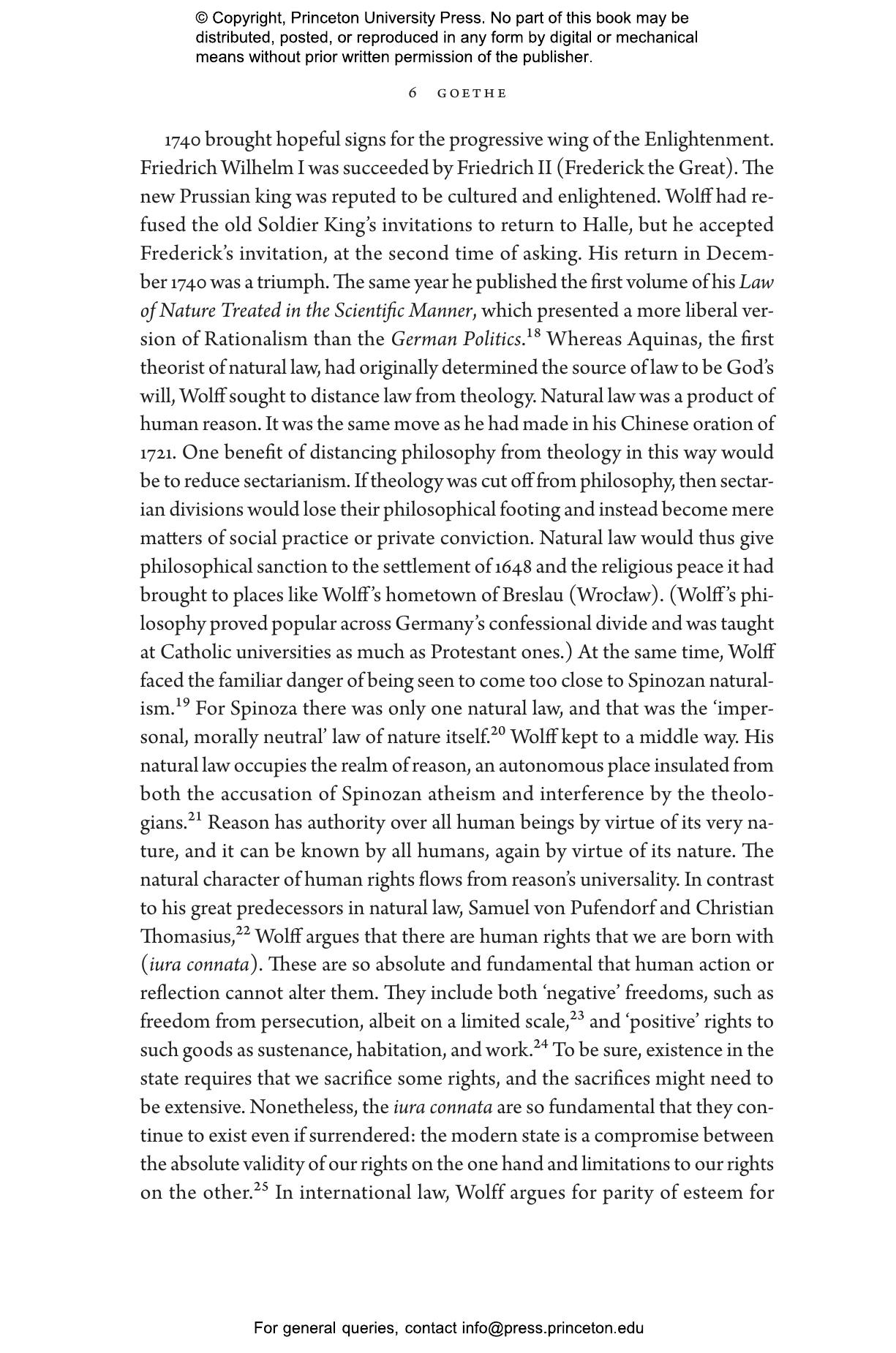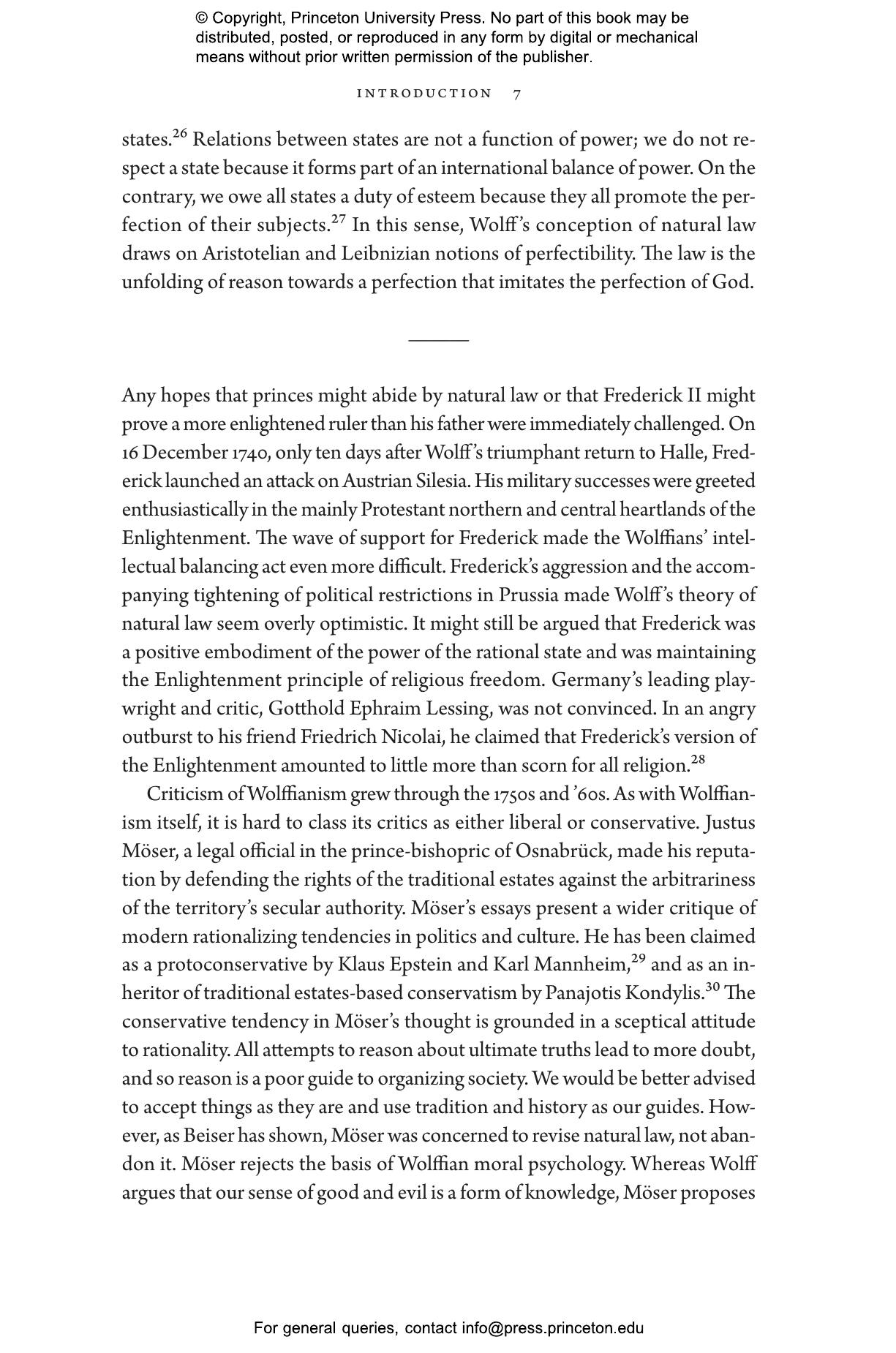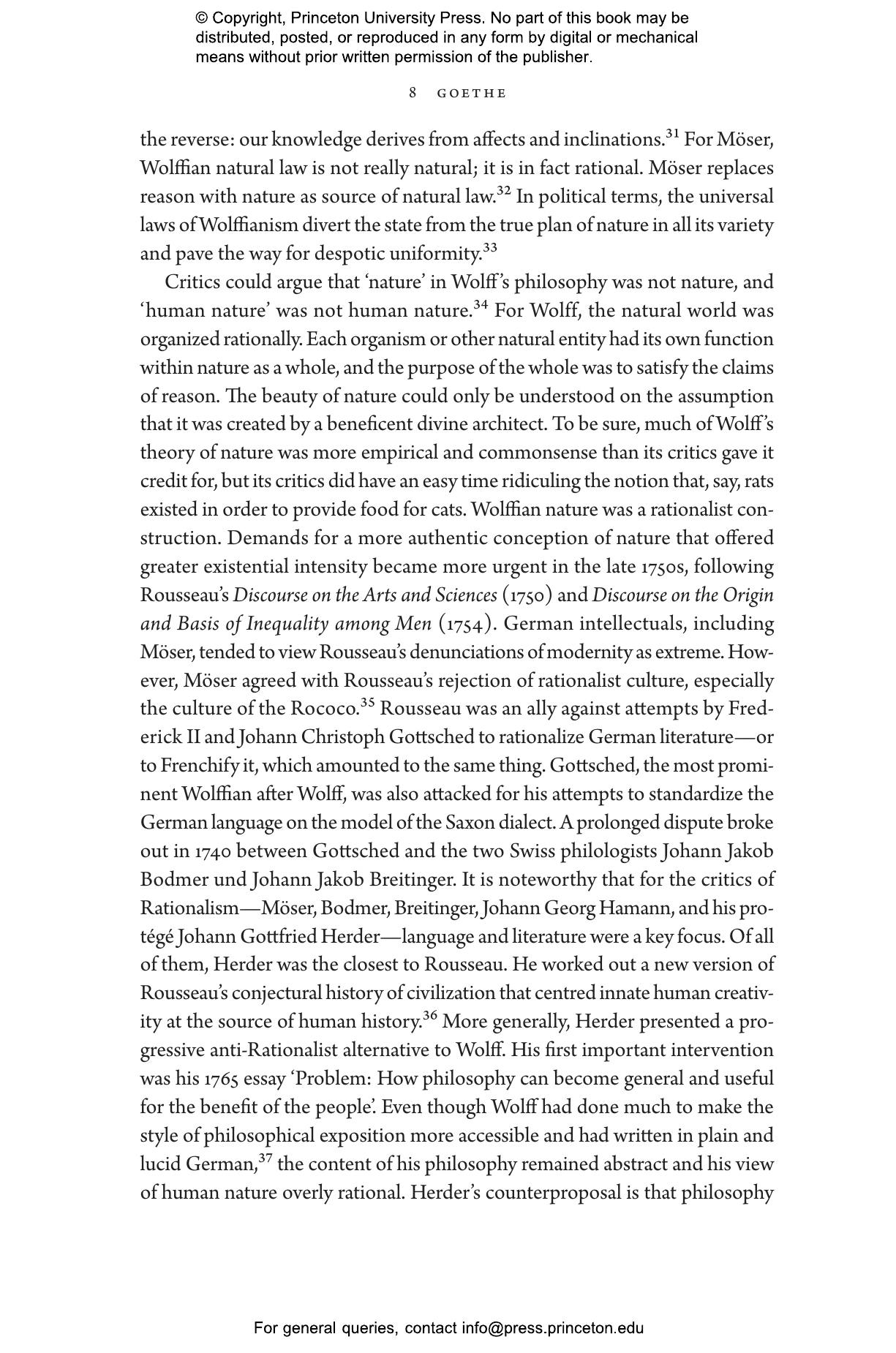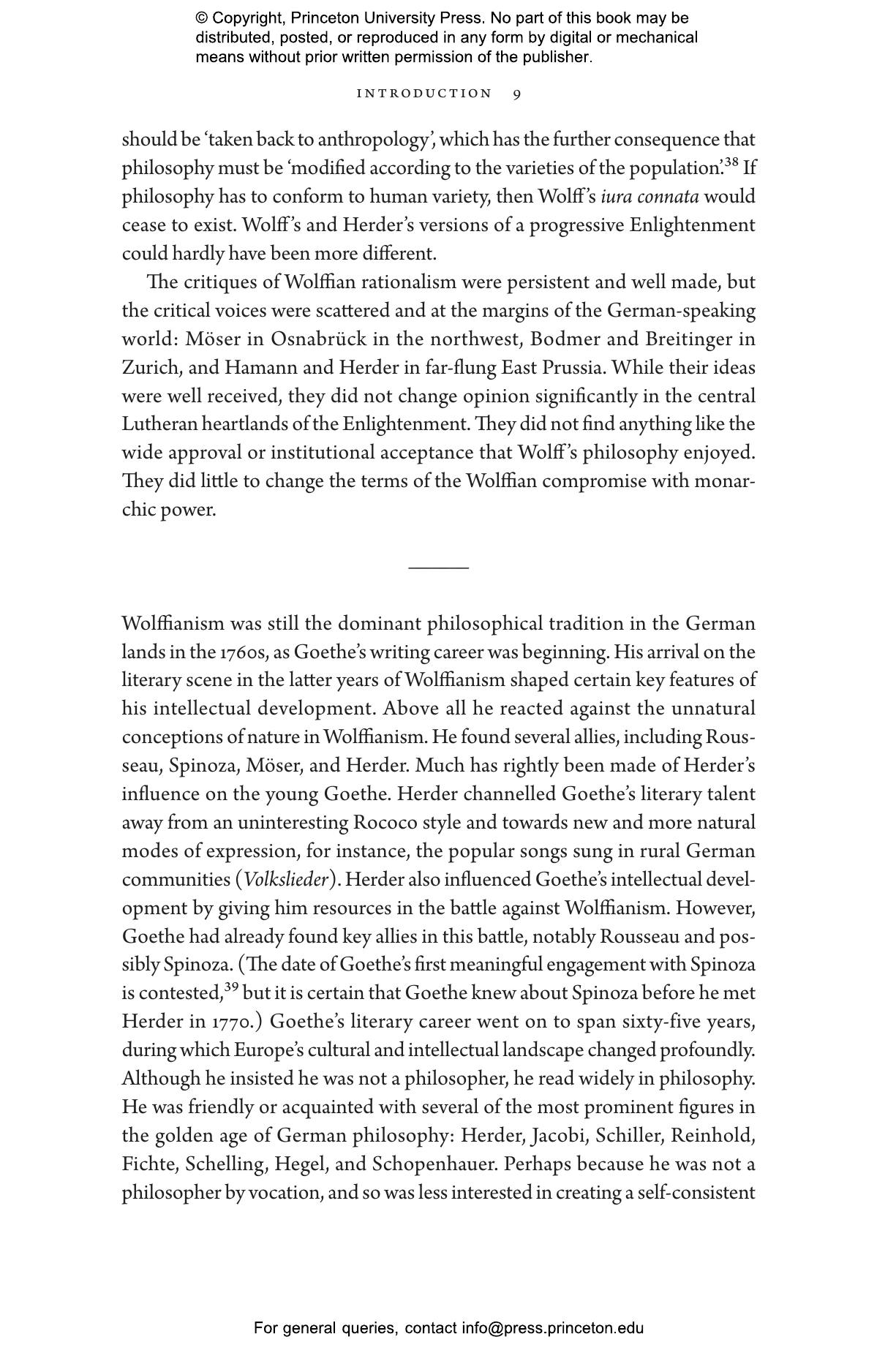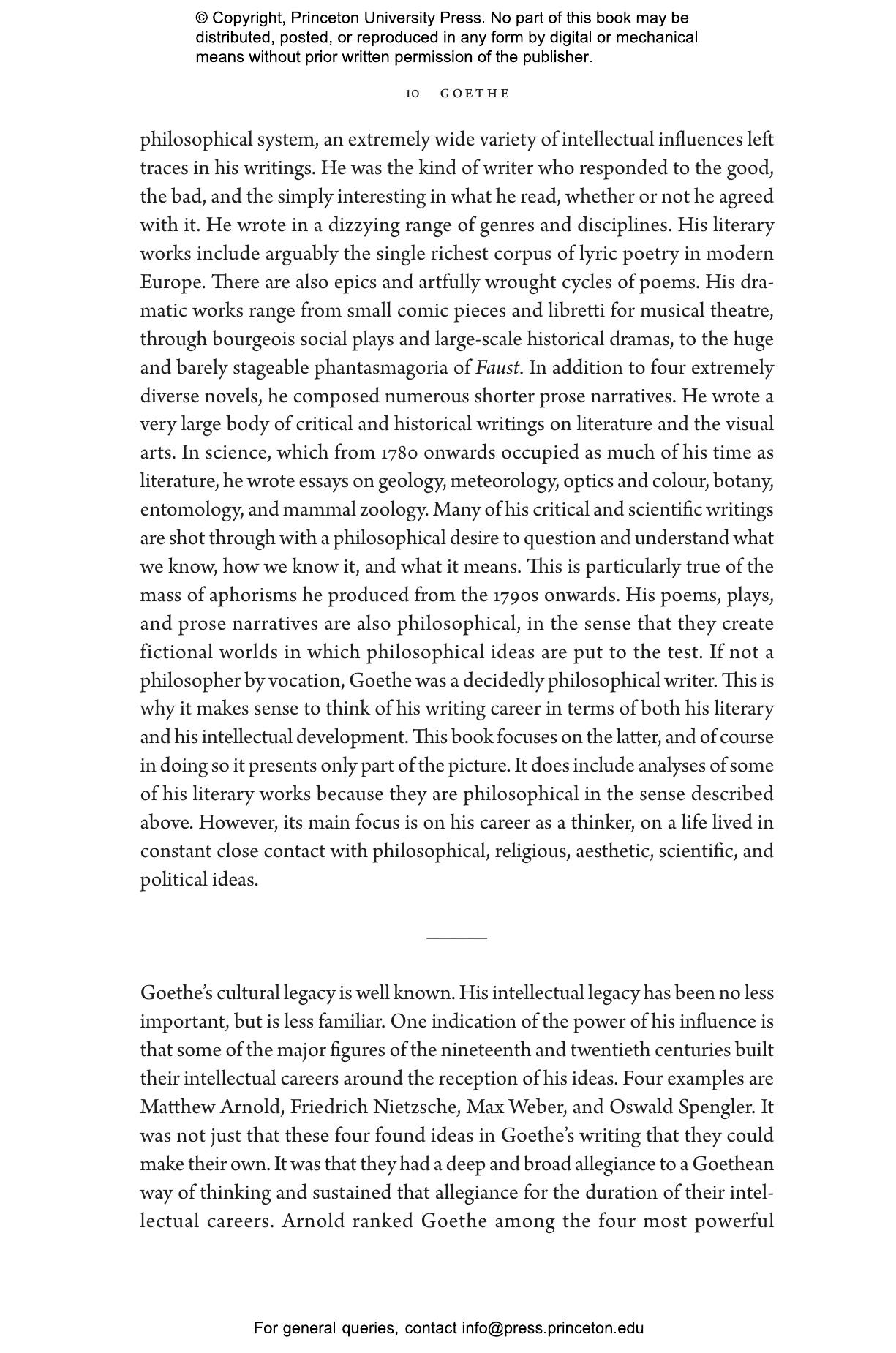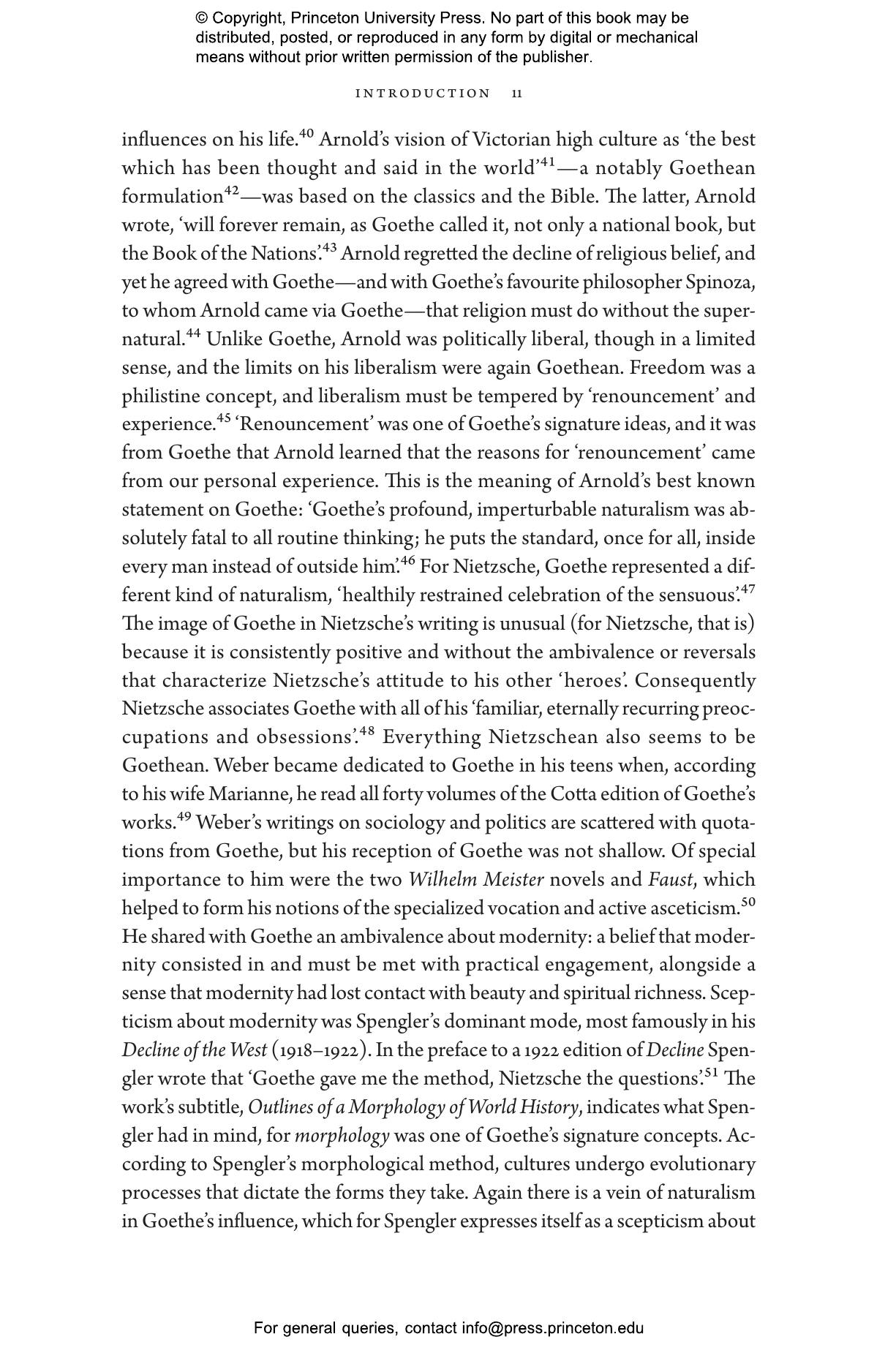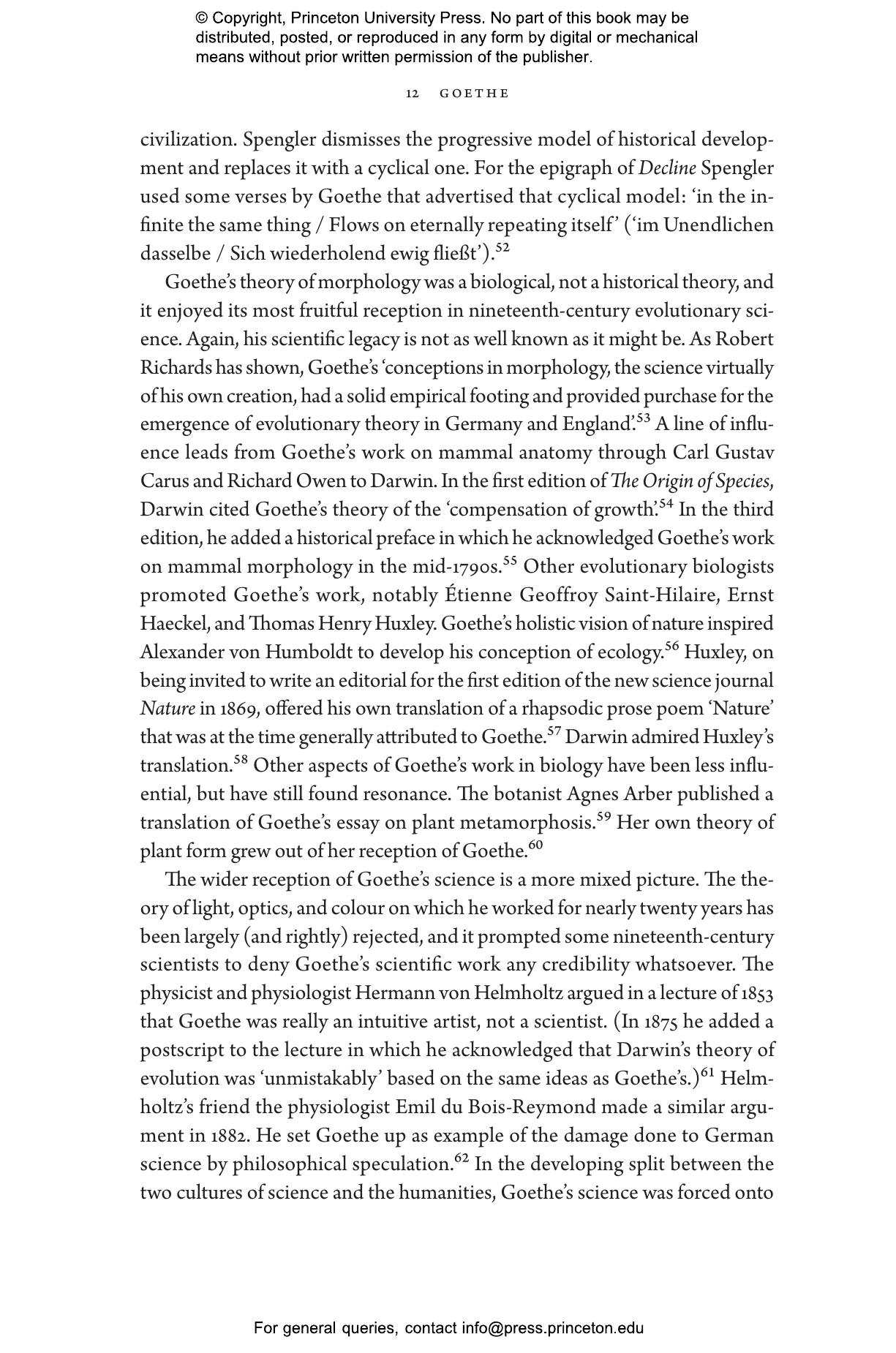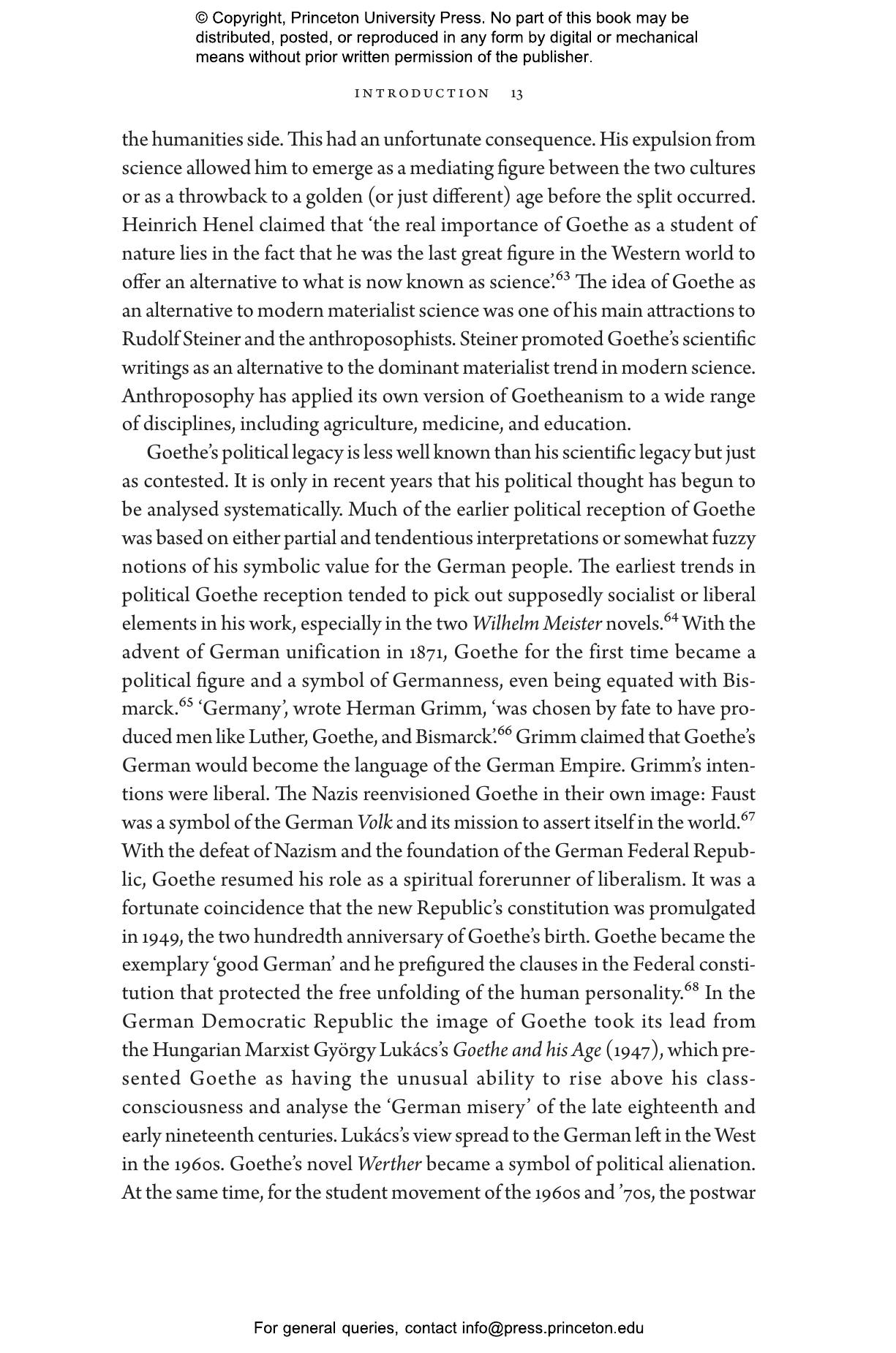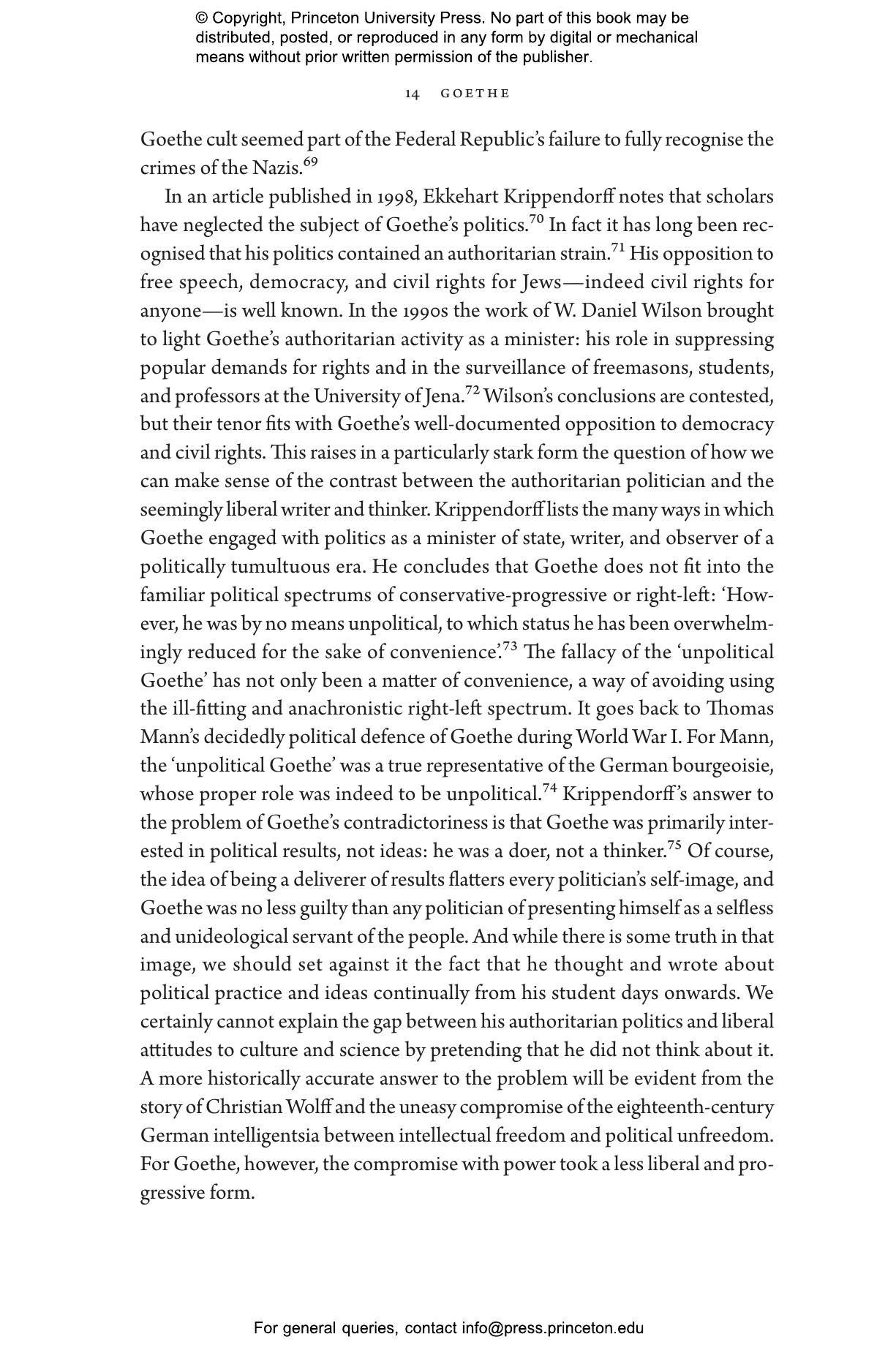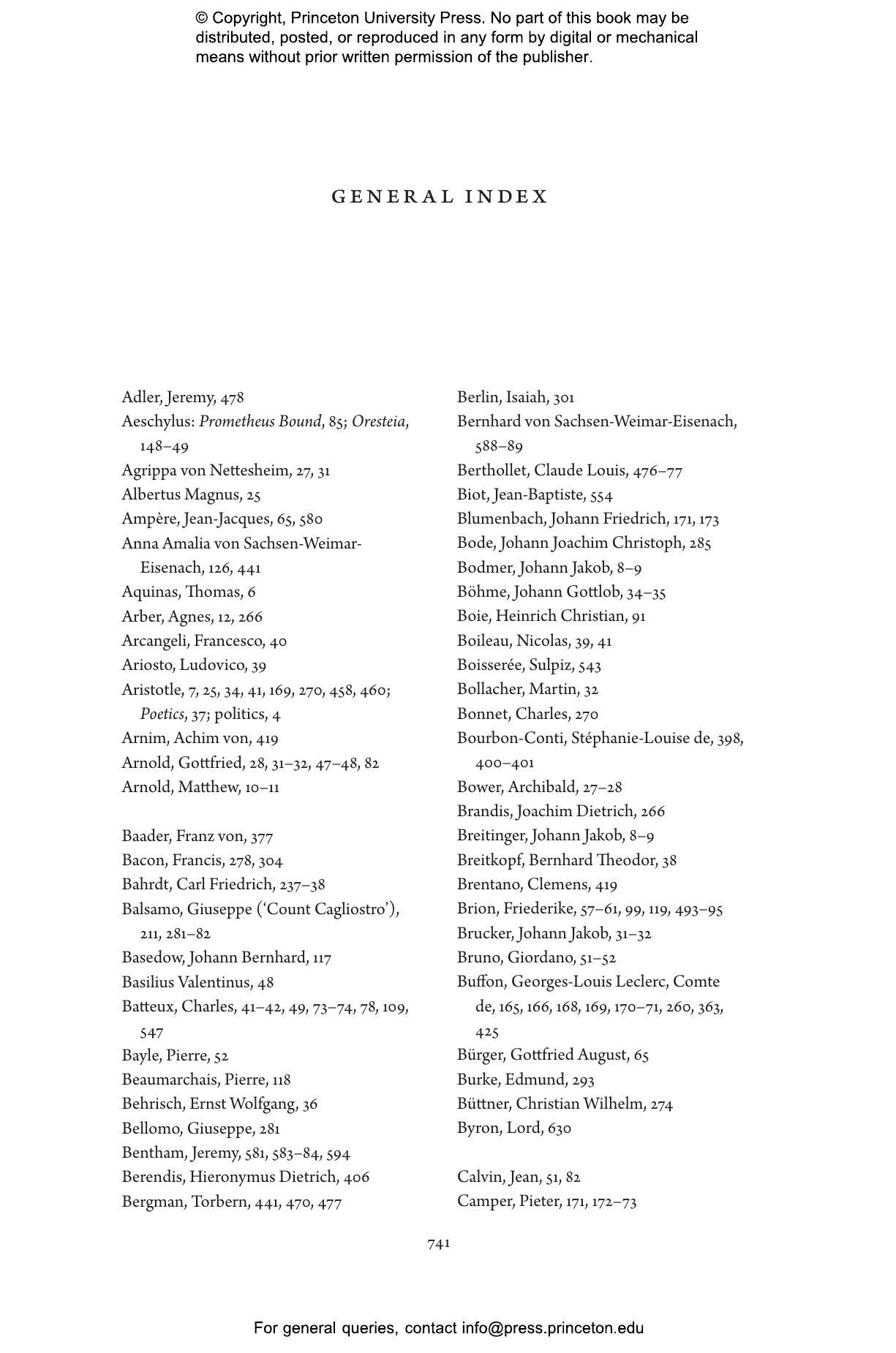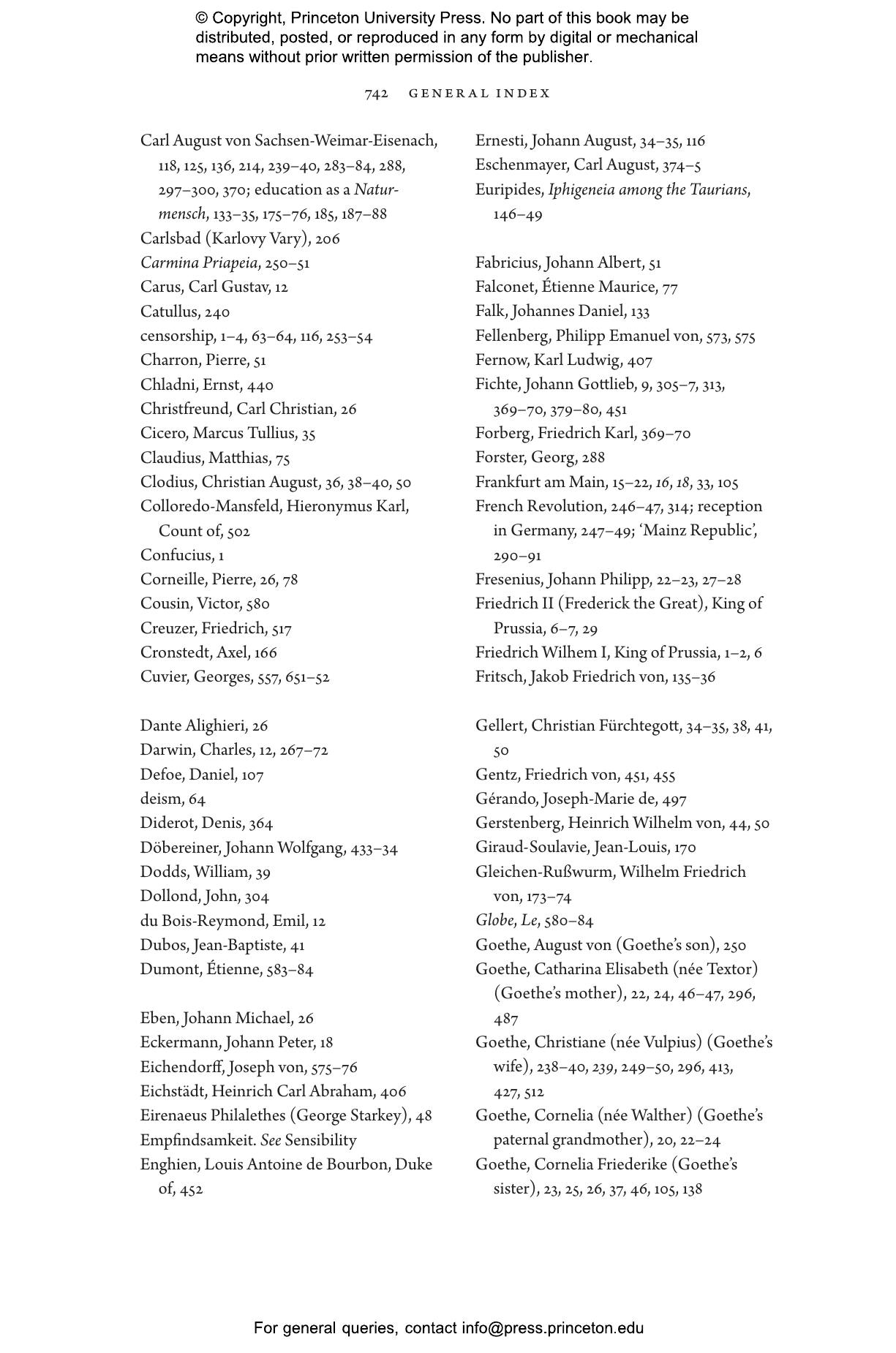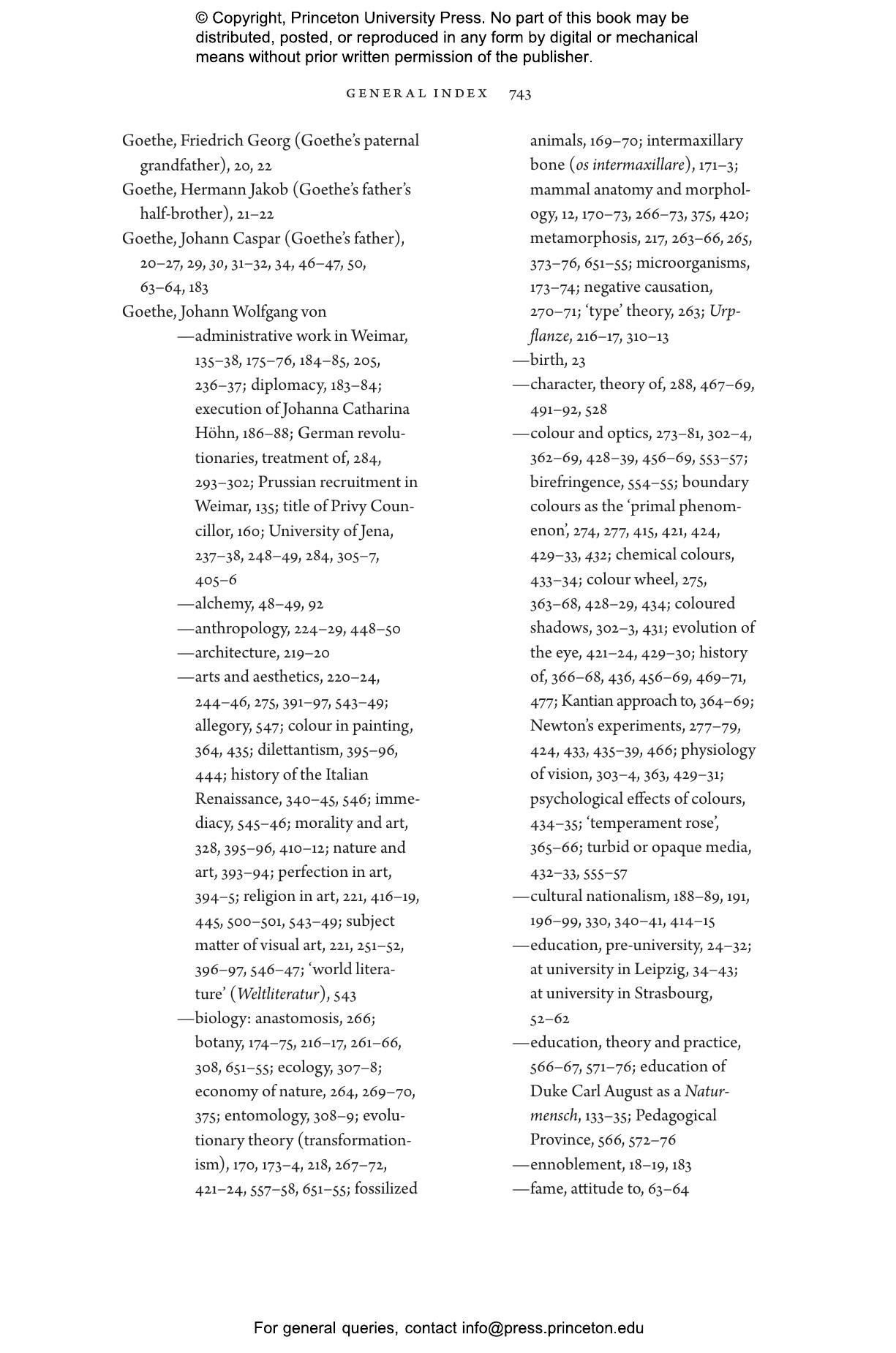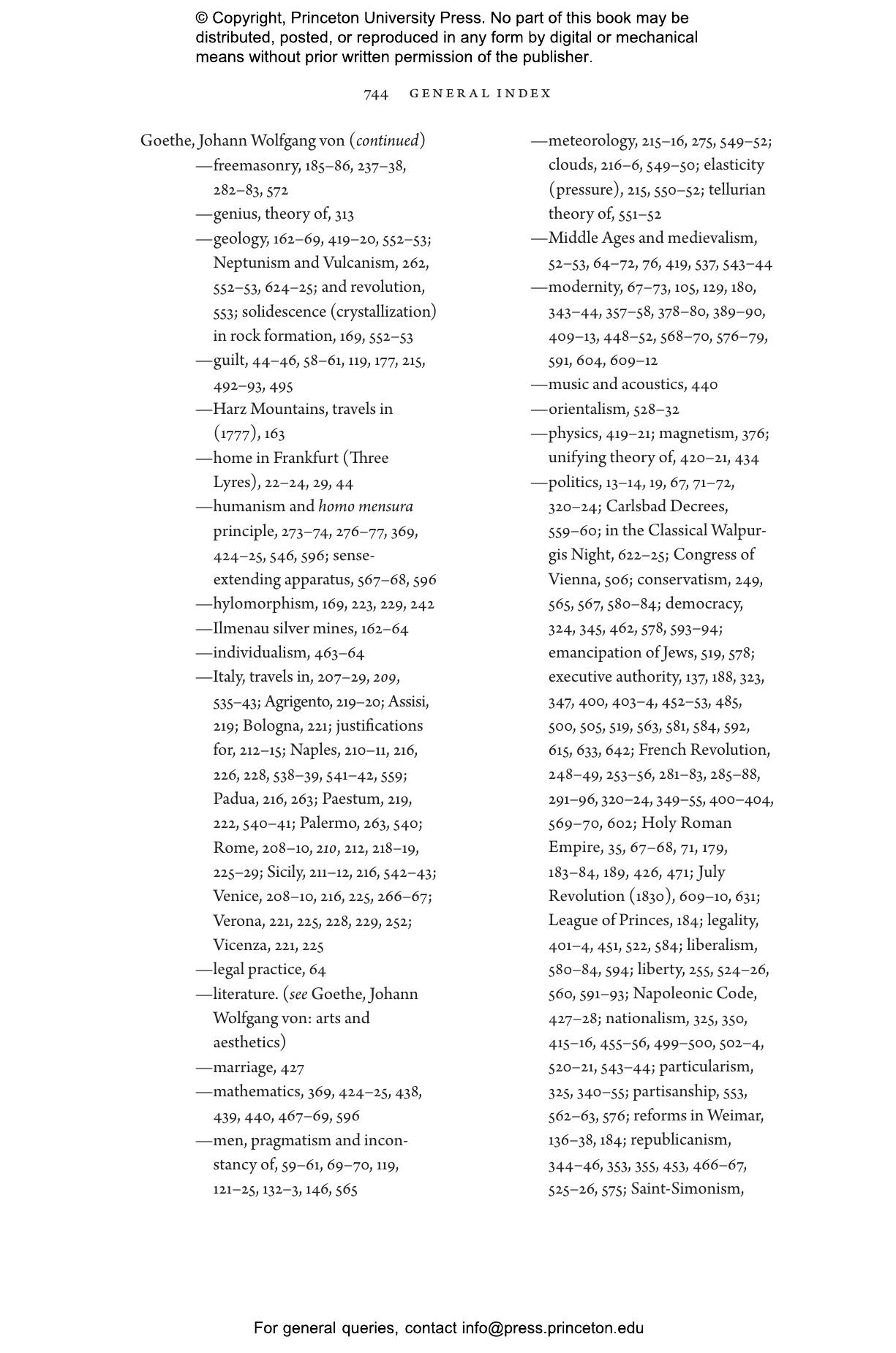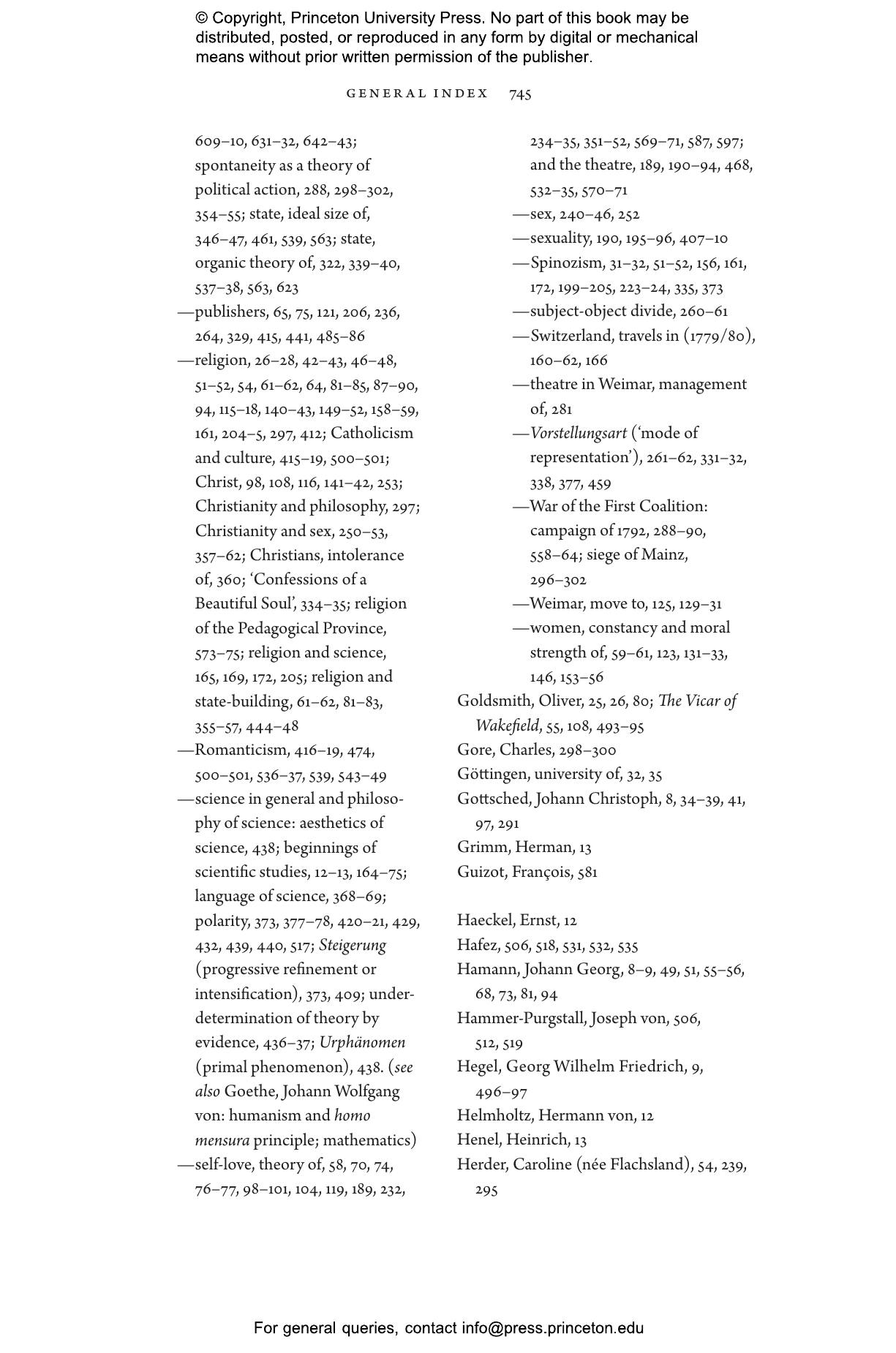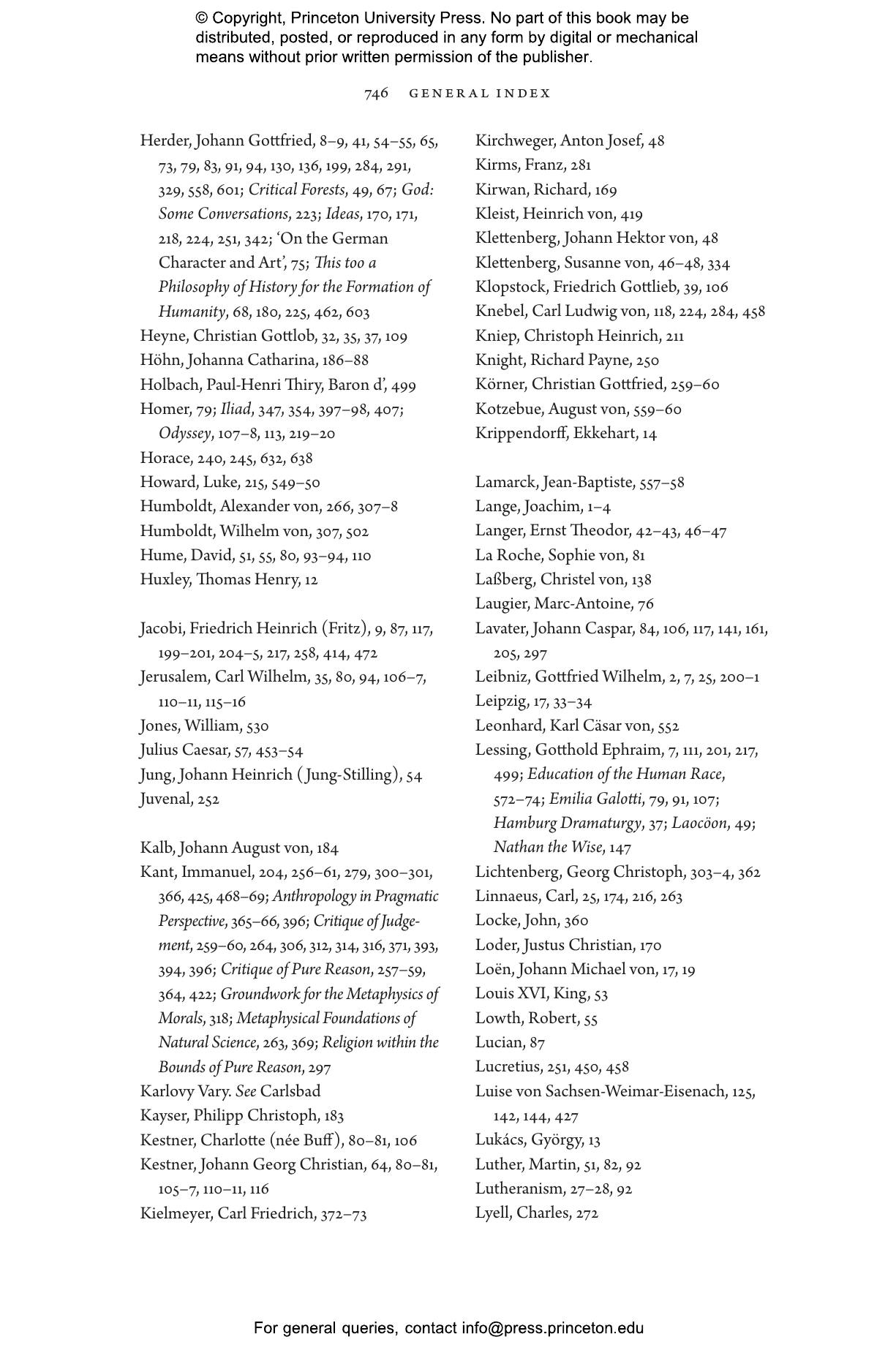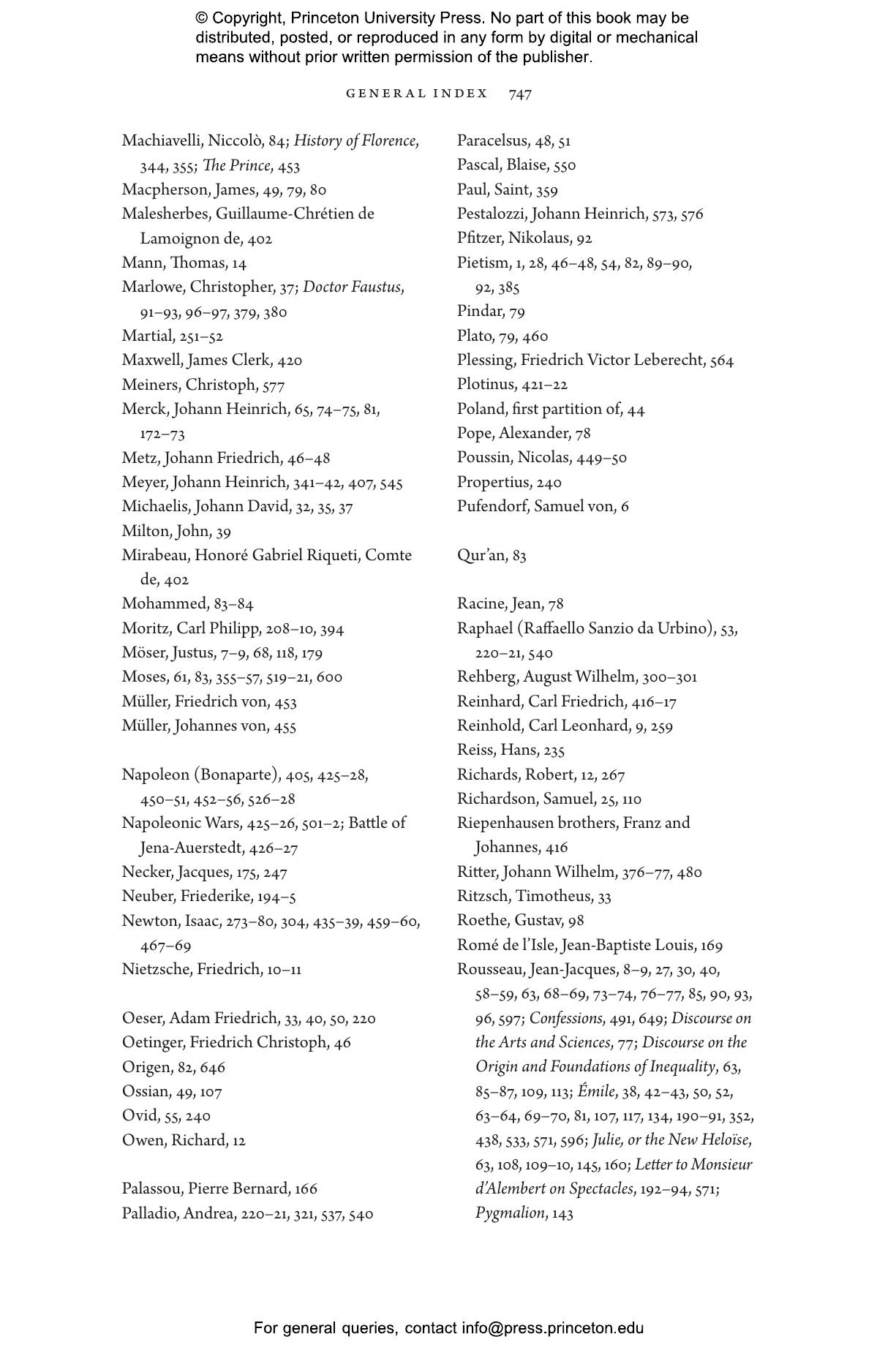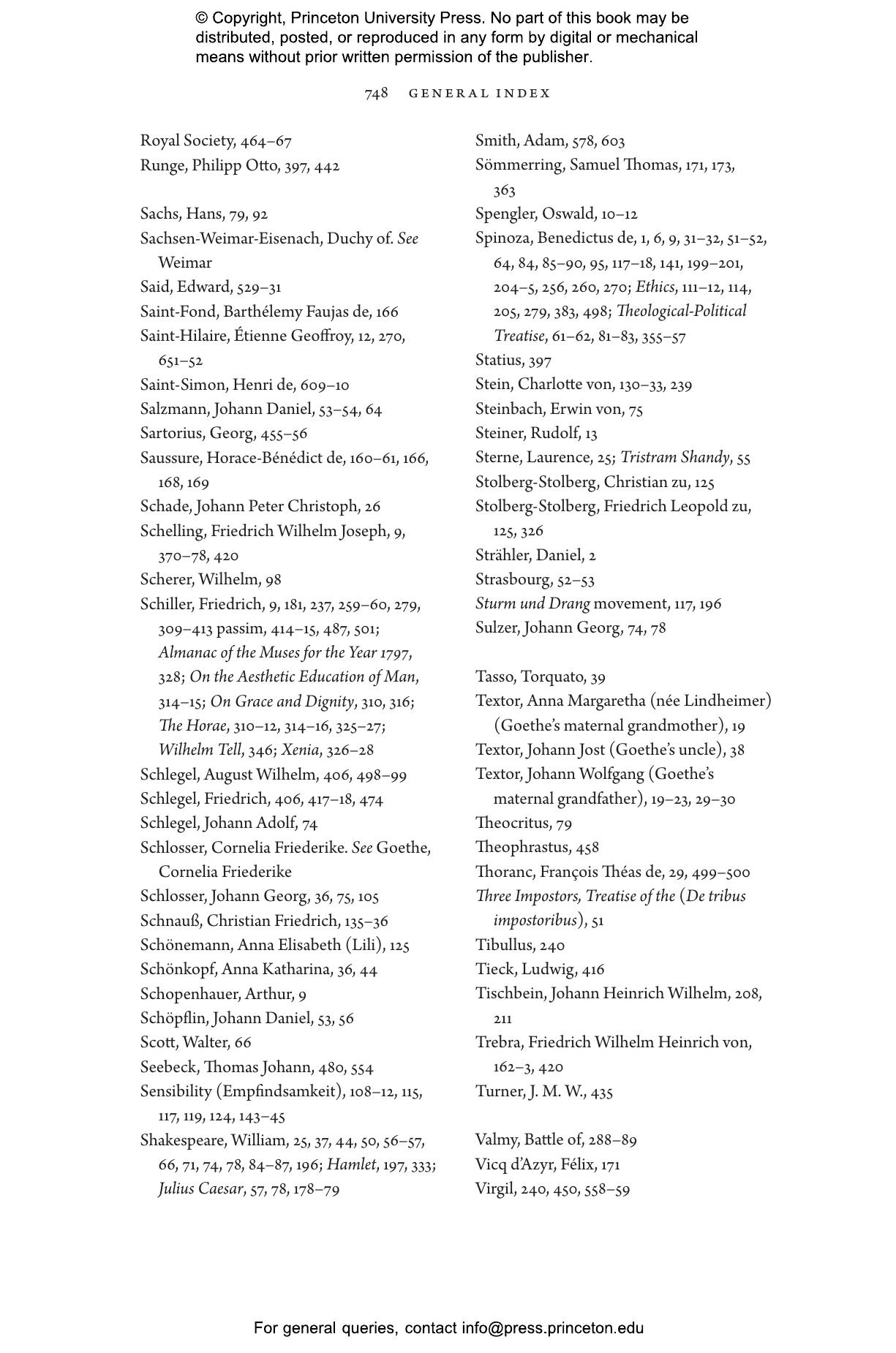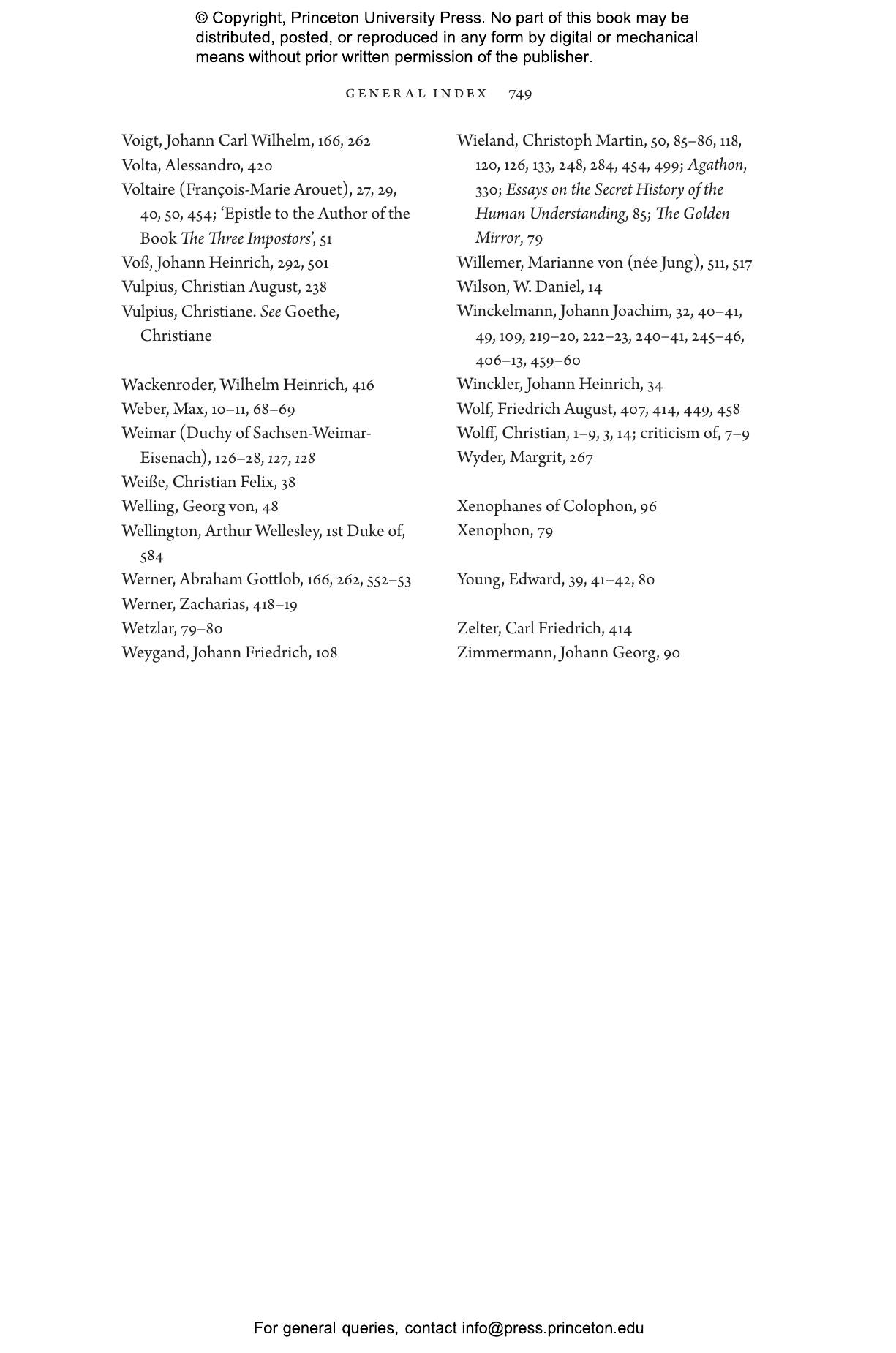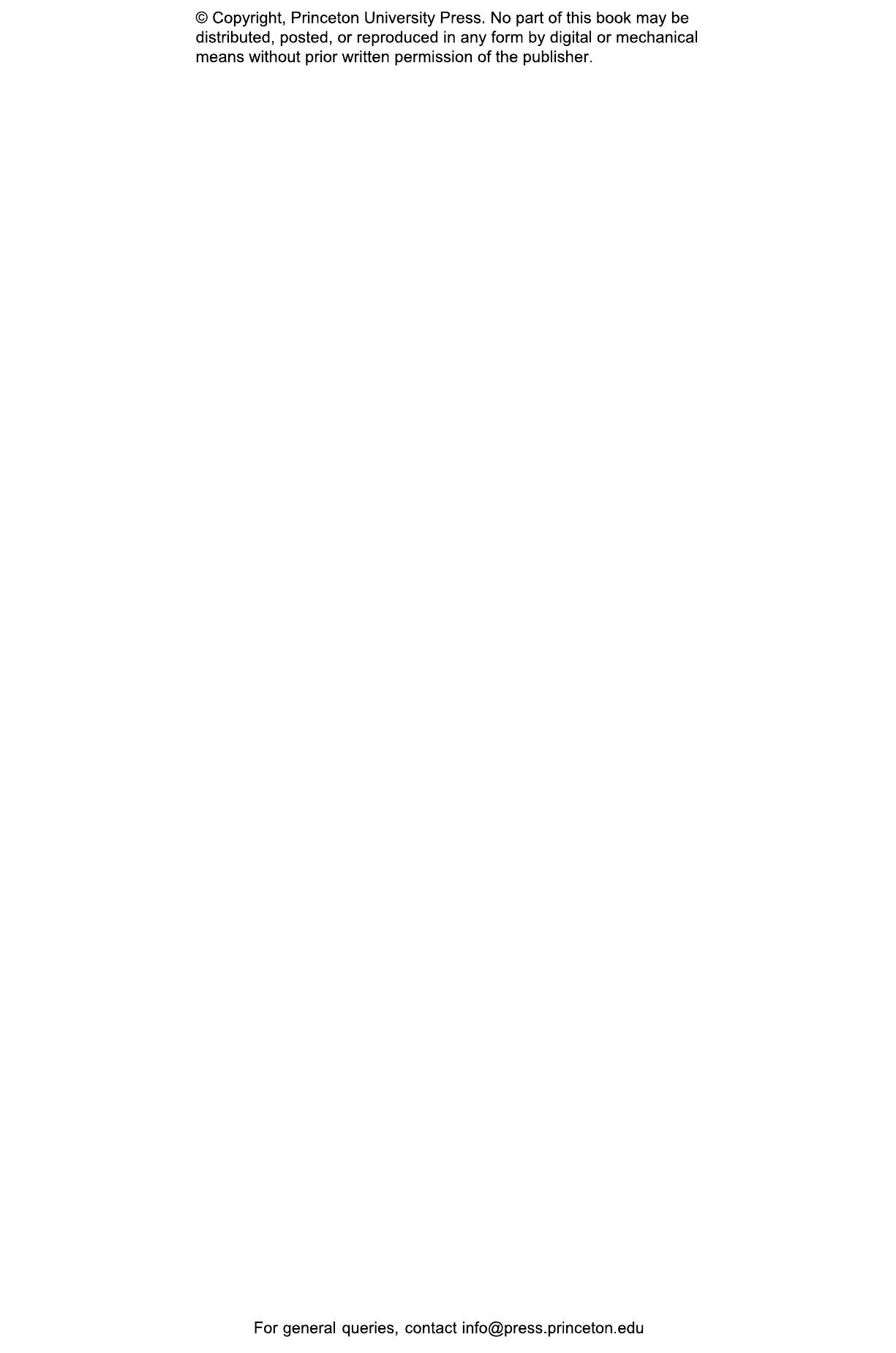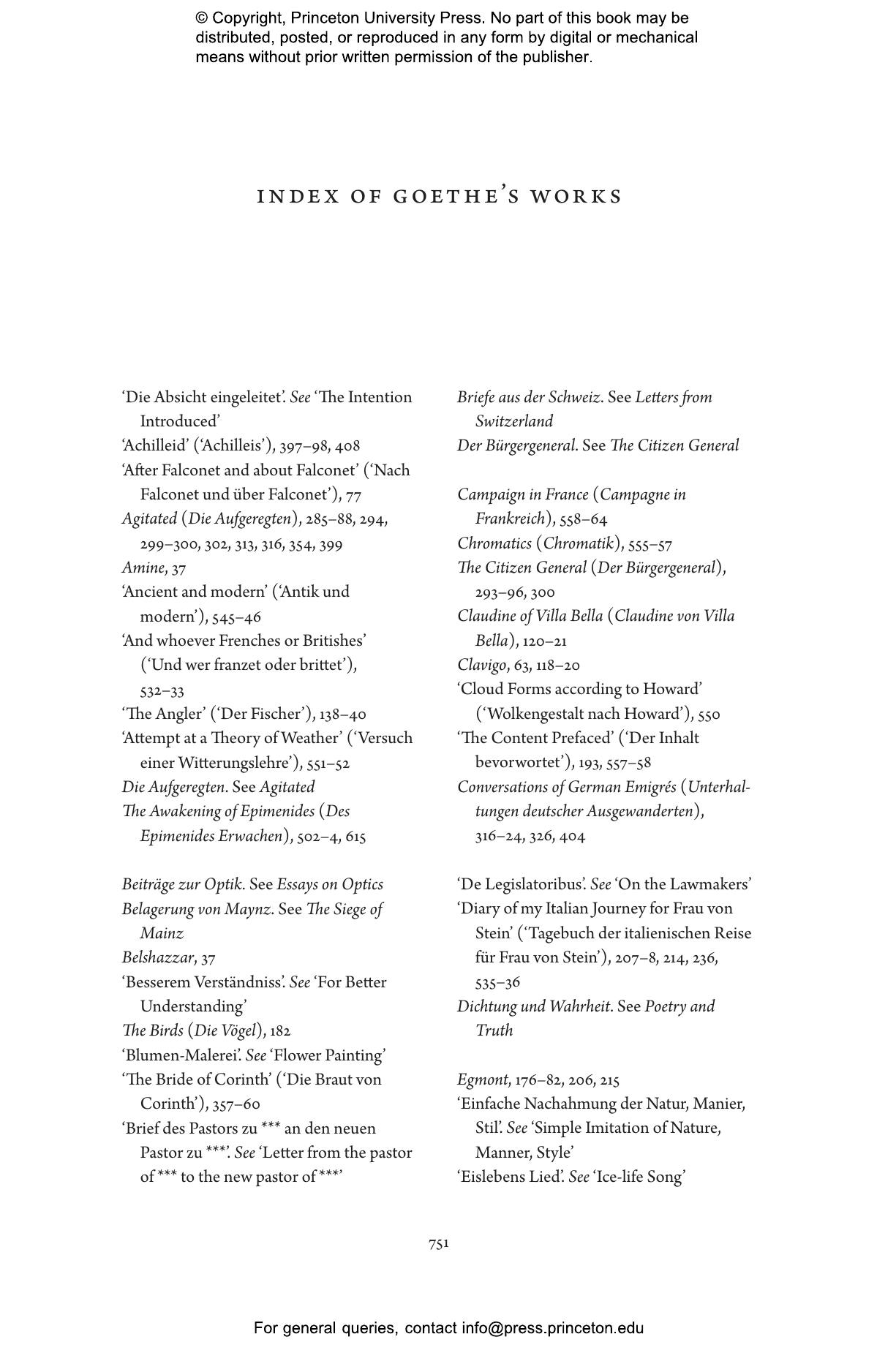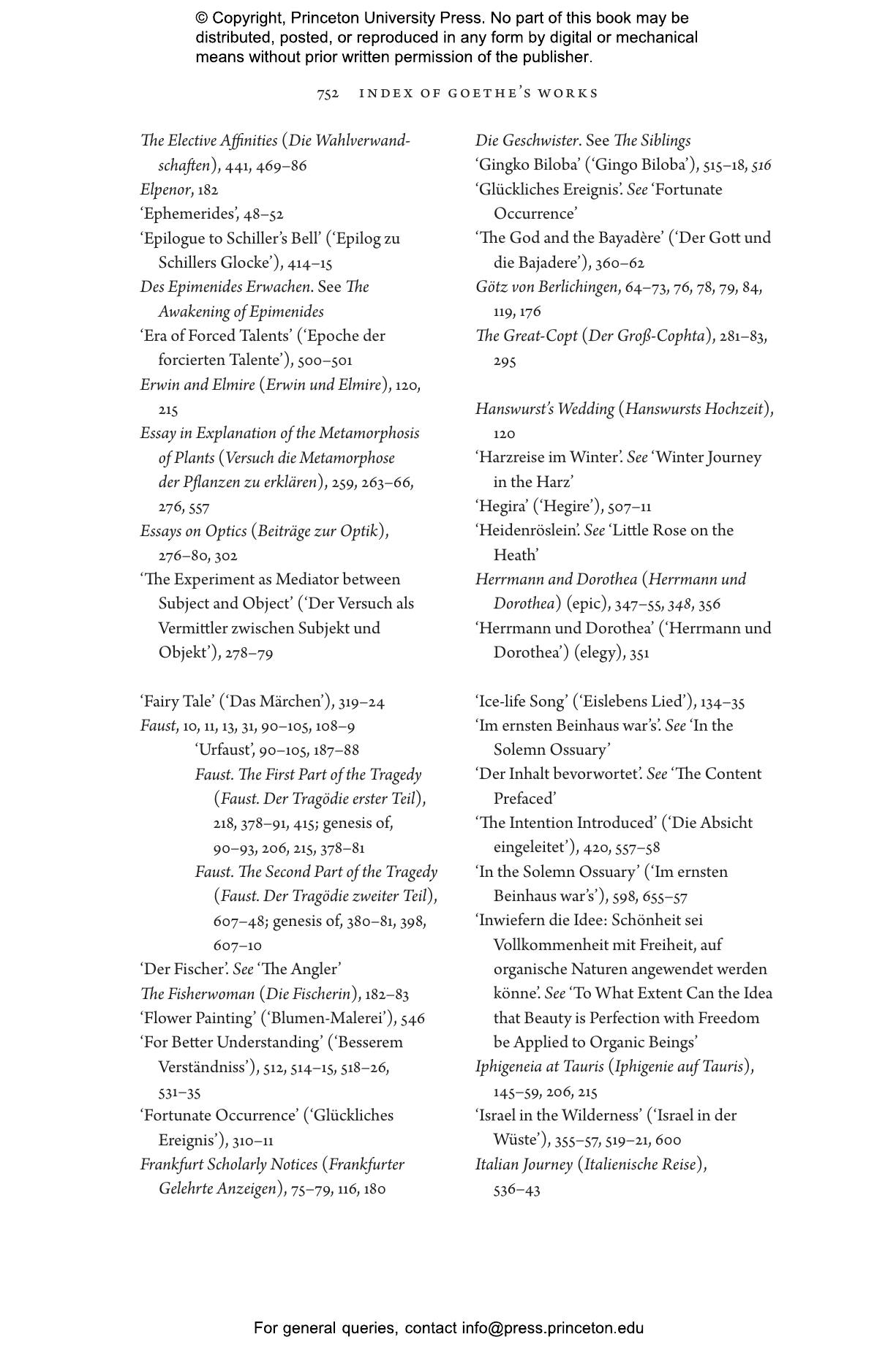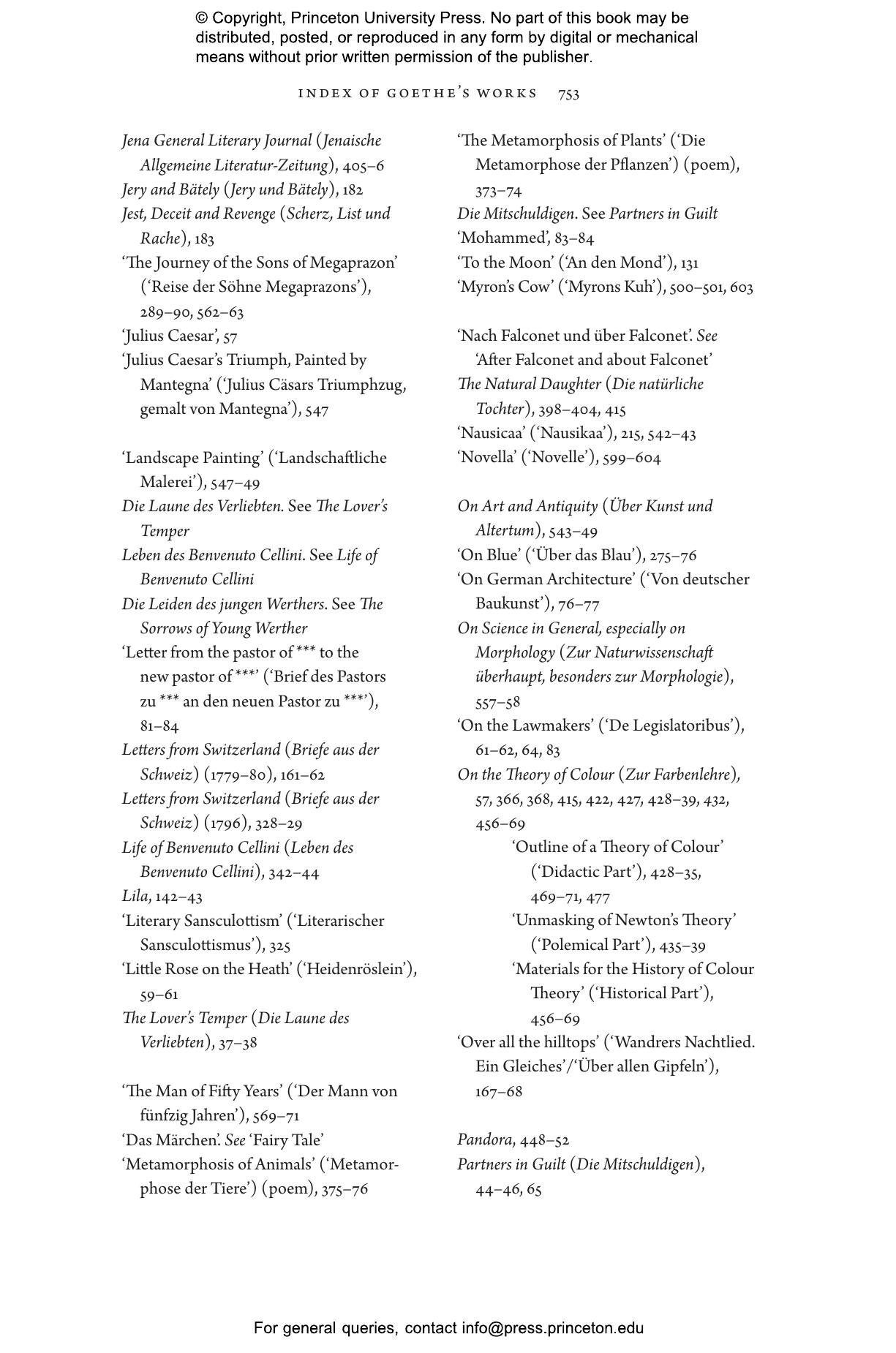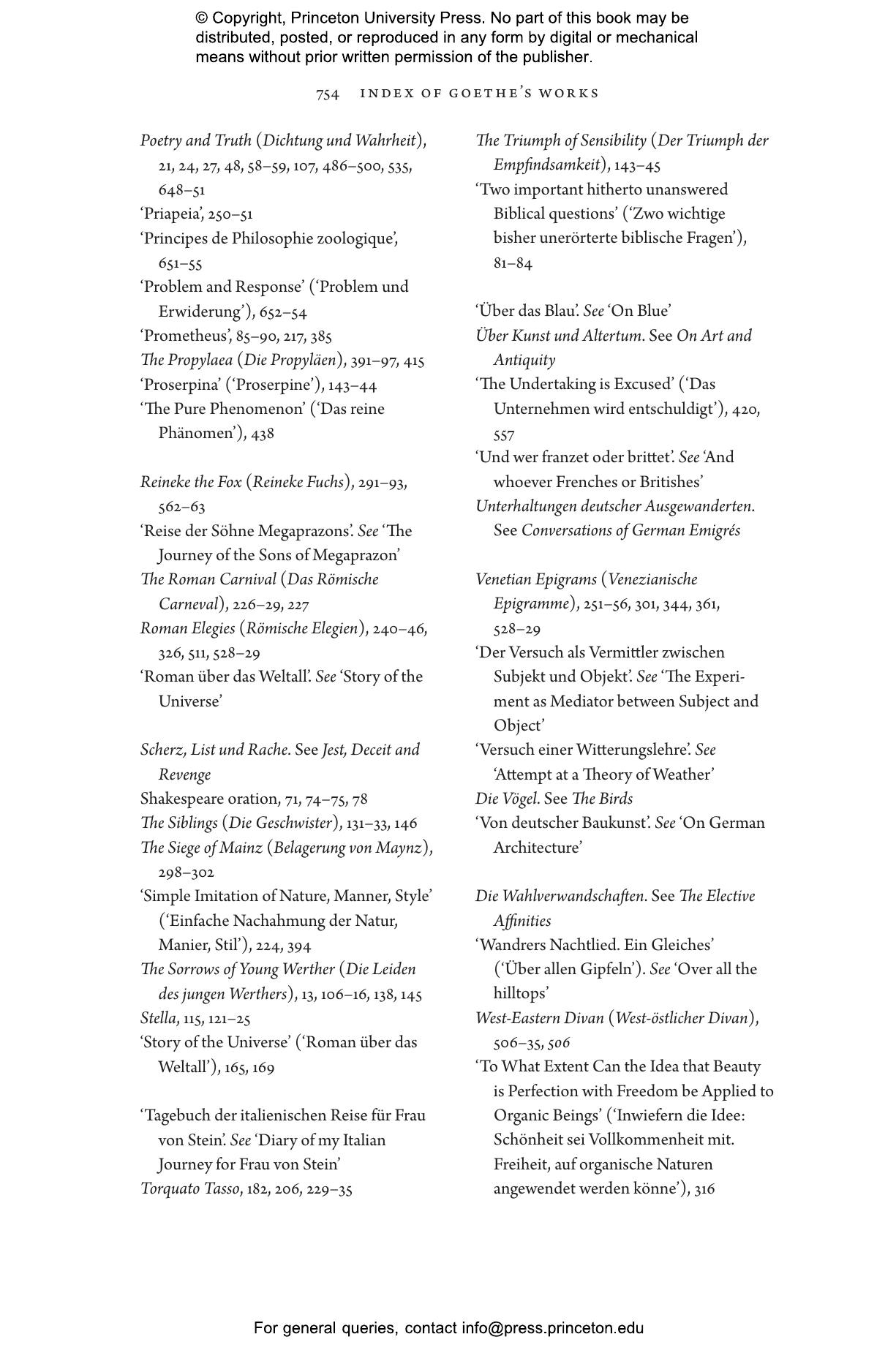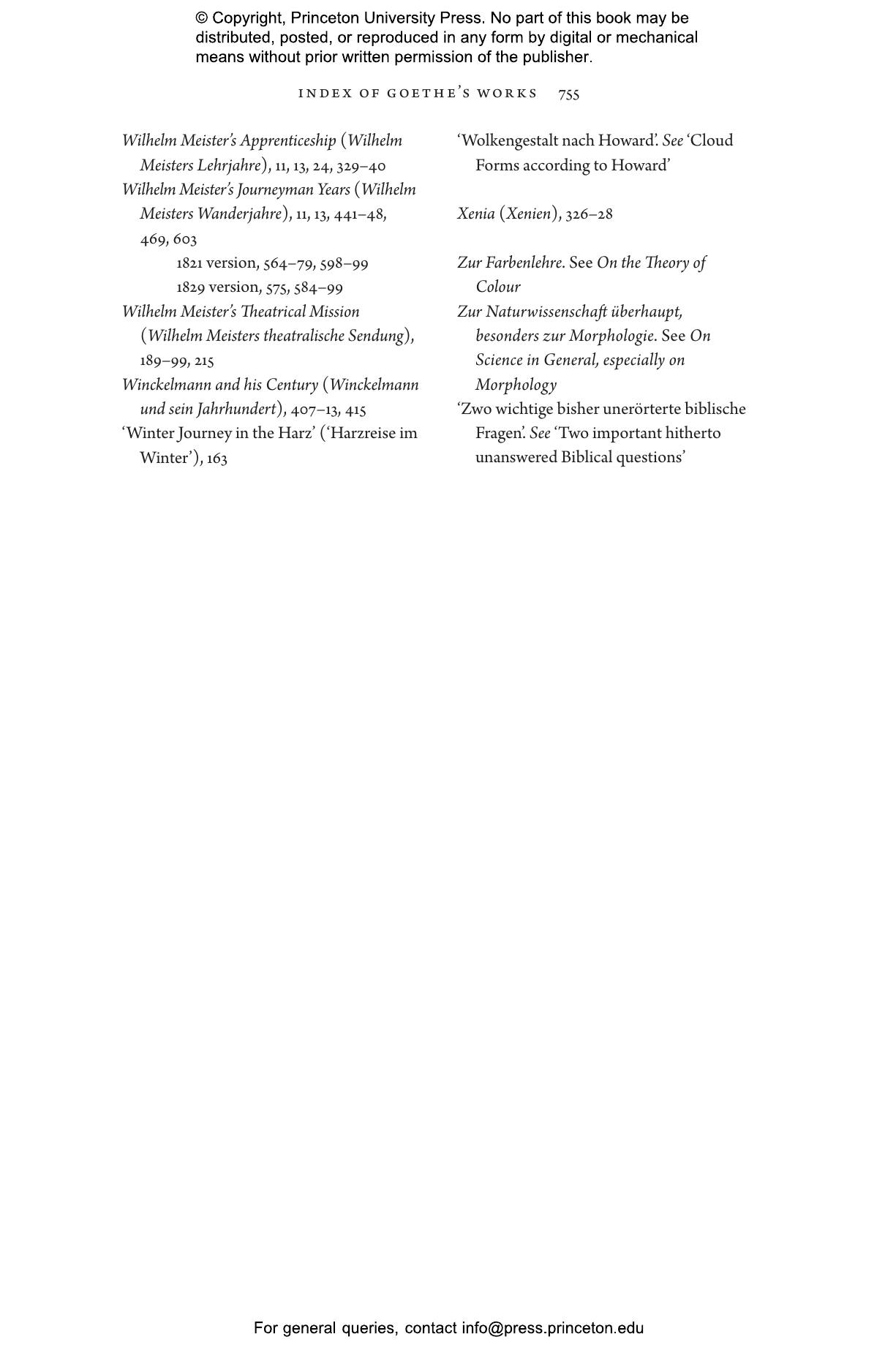Johann Wolfgang von Goethe (1749–1832) was a poet, a novelist, a scientist and an essayist on a dizzying range of topics. In the nineteenth century, he was widely regarded as one of the most important thinkers of modern Europe. In this important and ambitious work, Matthew Bell offers a wide-ranging intellectual biography of Goethe, tracing the evolution of his thought and reassessing its value. Bell examines the full spectrum of Goethe’s writing, from his most well-known works, including the dramatic poem Faust and the novels Wilhelm Meister and The Sorrows of Young Werther, to lesser-known essays and reviews. Throughout, Bell draws on Goethe’s letters and diaries, most of which are stll only available in German, embedding Goethe’s thought in his lived experience and in the cultural and intellectual life of Europe from the 1750s to the 1830s.
Bell presents new interpretations of Goethe’s work as one of the first evolutionary biologists, describing discoveries that anticipated Darwin’s, and of his political ideas, which pervade his literary work in ways that have not been fully recognized. Bell offers an original and illuminating explanation for the paradox of Goethe’s thought, exploring how a radical individualist who espoused liberal and innovative ideas in some areas—in particular, religion, sexuality and science—could remain consistently conservative and authoritarian in his political outlook. Rereading Goethe through this new lens, Bell shows, reveals new dimensions of work we thought we knew well.
Matthew Bell is professor of German and comparative literature at King’s College London. He is the author of Goethe’s Naturalistic Anthropology; The German Tradition of Psychology in Literature and Thought, 1700–1840; and Melancholia: The Western Malady; and the editor of The Essential Goethe (91ÌÒÉ«).
13459
"The great scholarly achievement of this book lies in its synthesis of Goethe’s personal writing (especially his letters) with his public work. . . . An epic reassessment of the founder of modern German life and letters."—Kirkus Reviews, starred review
"Bell’s book is a monument to academic investigation."—Terry Potter, The Letterpress Project
“This is an intellectual biography that finely intertwines historical context, literary criticism and the history of ideas, as well as Goethe’s relationship to Newton and emerging theories of evolution. Above all, it makes a forceful case to read Goethe again—as a writer, scientist and diplomat who played his part in redrawing the map of Europe.”—Martin Puchner, author of Culture: A New World History
“Goethe's major intellect is often paradoxically obscured by his supreme poetic power. It needed Bell's demonstration that the two were interwoven in a succession of interactions—with Rousseau, Spinoza, scientific empiricism, Kant and the age's new aesthetics: truly, a ‘life in ideas.’”—T. J. Reed, University of Oxford
“An attractively written account of the remarkable intellectual edifice underlying Goethe’s oeuvre. There was hardly a province of human knowledge which Goethe did not survey in depth, and Bell’s intellectual biography brings this engagement superbly to the fore. This is an impressive achievement: particularly commendable is the nuanced analysis of Goethe’s politics in relation to his religious views, scientific research and literary works.”—Avi Lifschitz, Magdalen College, University of Oxford
This publication has been produced to meet accepted Accessibility standards and contains various accessibility features including concise image descriptions, a table of contents, a page list to navigate to pages corresponding to the print source version, and elements such as headings for structured navigation. Appearance of the text and page layout can be modified according to the capabilities of the reading system.
Accessibility Features
-
WCAG v2.2
-
WCAG level AA
-
Table of contents navigation
-
Single logical reading order
-
Short alternative textual descriptions
-
Print-equivalent page numbering
-
Landmark navigation
-
Index navigation
-
Epub Accessibility Specification 1.1
-
ARIA roles provided
-
All non-decorative content supports reading without sight
-
No known hazards or warnings


